- ஆராய்ச்சிகள்
- செயற்கை நுண்ணறிவு
- புகைப்படங்கள்

- NeoTamil TV Original Series


புதிய சாதனை படைத்த நாசா: செவ்வாயில் கார்பன்-டை-ஆக்ஸைடை ஆக்ஸிஜனாக மாற்றியது. அடுத்தது என்ன..?
போலந்தில் 5,000 ஆண்டுகள் பழமையான கல்லறைகள் கண்டுபிடிப்பு, 17,300 ஆண்டு பழமையான கங்காரு ஓவியம் ஆஸ்திரேலியாவில் கண்டுபிடிப்பு, கர்ப்பிணி பெண்கள் கொரோனா தடுப்பூசி எடுத்துக்கொள்ளலாமா அறிவியல் உண்மை என்ன, கணினியால் ஏற்படும் கண் பாதிப்புகள்: கண்களை பாதுகாப்பது எப்படி, ஆன்லைன் வகுப்பு: குழந்தைகள் பாதுகாப்பான முறையில் செல்போன்களை பயன்படுத்துவது எப்படி பெற்றோர்கள் கவனிக்க வேண்டியவை, ifsc என்றால் என்ன எங்கு, எப்படி பயன்படுகிறது, online interview – க்கு நம்மை தயார்படுத்துவது எப்படி 6 முக்கியமான வழிமுறைகள், ‘பயணம் அறிவாளியை மேதையாக்கும்’ பயணம் பற்றிய 17 பொன்மொழிகள்.
- பயணங்கள் நமக்கு பொறுமை மற்றும் சகிப்புத்தன்மையைக் கற்றுக் கொடுக்கின்றன. – பெஞ்சமின் டிஸ்ரேலி
- நான் மெதுவாக நடப்பவன்தான். ஆனால் ஒருபோதும் பின்வாங்குவதில்லை. – ஆப்ரஹாம் லிங்கன்
- வெற்றிக்கு எந்தக் குறுக்கு வழியும் கிடையாது. நாம்தான் நடந்து நடந்து பாதை போட வேண்டும் – டிஸ்ரேலி
- நம்பிக்கையோடு உன் முதலடியை எடுத்து வை. முழுப் படிக்கட்டையும் நீ பார்க்க வேண்டிய அவசியமில்லை. முதல் படியில் ஏறு. – மார்ட்டின் லூதர் கிங்
- வெற்றி என்பது குறிக்கோள் அன்று, அது ஒரு பயணமே ஆகும். பயணம் தொடர்ந்து கொண்டே இருக்க வேண்டும். – இங்கர்சால்
- நடந்துகொண்டே இரு… பாதை தானாக உருவாகும் – ஜென் தத்துவ மொழிகள்
- செல்லும் பாதை சரியாக இருந்தால், வேகமாக அல்லது மெதுவாக ஓடினாலும் வெற்றி தான்.
- எதிரி இல்லை என்றால், நீ இன்னும் இலக்கை நோக்கி பயணிக்கவில்லை என்று அர்த்தம்.
- எல்லோரும் பயணிக்கிறார்கள் என்று நீயும் பின் தொடராதே. உனக்கான பாதையை நீயே தேர்ந்தெடு.
- ஒவ்வொரு நாளும் வெற்றி பயணத்தை தொடங்கிவிட்டேன் என்று முதலடி எடுத்து வை.
- பாதைகள் தொடர்ந்தால் பயணங்கள் முடியாது.. விழுந்தவன் துணிவுடன் மீண்டும் எழுந்தால் இனி உனக்கு வெற்றி மட்டும் தான் உன் வாழ்க்கை.
- ஆயிரம் மைல்களுக்கான பயணம் ஒரு அடியிலேயே தொடங்குகின்றது.
- பயணம் அறிவாளியை மேதையாக்கும்.
- புயலுக்கும் பூகம்பத்துக்கும் இடையிலான புரியாத போராட்ட பயணம் தான் வாழ்க்கை. ஆரம்பத்திலேயே புரிய வேண்டுமென நினைத்தால் சுவாரஸ்யம் இருக்காது.
- பாதைகளில் தடைகள் இருந்தால் அதை தகர்த்து விட்டு தான் செல்ல வேண்டும் என்றில்லை. தவிர்த்து விட்டும் செல்லலாம் எறும்பைப் போல.
- நம்பிக்கை என்னும் படியில் நீ இருக்கும் வரை, வெற்றி எனும் ஓடை உனக்காக திறந்தே இருக்கும்.
- அடுத்தவர் ஆயிரம் வழிகளில் வாழலாம். ஆனால் உனக்கான வாழ்க்கைப் பாதையை நீ தேர்ந்தெடுக்கும் வரை வெற்றி என்பது உனக்கு கிடைக்காத பொக்கிஷமாகவே இருக்கும்.
Also Read: ‘சிக்கனமும் சேமிப்பும் வாழ்க்கை தரத்தை உயர்த்தும் இரு கருவிகள்’ சேமிப்பு பற்றிய 35 பொன்மொழிகள்!
‘மனித முயற்சிக்கு எவ்வித எல்லைகளும் இருக்கக்கூடாது’: ஸ்டீபன் ஹாக்கிங் கூறிய 16 சிறந்த பொன்மொழிகள்!
‘நட்பும் ஒரு பொக்கிஷம் தான், நீ அதற்கு உண்மையாக இருக்கும் வரை..’ நட்பு பற்றிய…
LEAVE A REPLY
Log in to leave a comment
Share post:
தவளைகள் (Frogs) பற்றி பலரும் அறிந்திடாத 12 சுவாரசிய தகவல்கள்!
ரமணி சந்திரன் அவர்களின் சிறந்த 15 காதல் கதைகள், இந்தியாவில் பாராகிளைடிங் (paragliding) செல்ல சிறந்த 7 இடங்கள், கிரேக்க தத்துவஞானி சாக்ரடீசு (socrates) அவர்களின் சிறந்த 15 பொன்மொழிகள், நீர்யானை (hippopotamus) பற்றி வியப்பூட்டும் 9 தகவல்கள், more like this related.

NeoTamil is Tamil Infotainment Media, renowned for its high-quality content. | Latest science news, analysis, opinions and updates.
இந்தோனேஷியாவைத் தாக்கிய புதிய வகை சுனாமி!!
3 லட்சம் அமெரிக்கர்கள் நுழைய விருப்பப்படும் ஏரியா 51 ல் அப்படி என்னதான் இருக்கிறது, இமயமலையில் பனிமனிதன் இருப்பதை உறுதிசெய்த இந்திய ராணுவம்.
© 2021 tagDiv. All Rights Reserved. Made with Newspaper Theme.
- Tamil Translation
- Tamil to English
- Tamil Keyboard
- Tamil Fonts
- Tamil Letters
Tamil Phrases
Essential Tamil Phrases: Guide to Learning Tamil
If you need additional Tamil phrases, you can use our online English to Tamil translation tool , facilitating the conversion of English sentences and phrases into Tamil.
Greetings and Pleasantries in Tamil
In Tamil, Greetings and Pleasantries are of significant importance in building social relationships. The language provides a variety of greetings suitable for various times of the day and occasions.
For instance, "Vanakkam" can be used to show respect and welcome someone. When it comes to specific times of the day, "Kaalaai Vanakkam" is used for "good morning" , and "Maalai Vanakkam" is used for "good evening" .
- Hello. / Hi. வணக்கம். (Vanakkam.)
- Thank you. நன்றி. (Nanri.)
- Thank you very much. மிக்க நன்றி. (Mikka nanri.)
- You are welcome. நீங்கள் வரவேற்கப்படுகிறீர்கள். (Ninkal varaverkappatukirirkal.)
- Yes. / No. ஆம். / இல்லை. (Am. / Illai.)
- Please. தயவு செய்து. (Tayavu ceytu.)
- Excuse me. / Sorry. மன்னிக்கவும். / மன்னிக்கவும். (Mannikkavum. / Mannikkavum.)
- Don`t worry. கவலைப்படாதே. (Kavalaippatate.)
- Good morning. காலை வணக்கம். (Kalai vanakkam.)
- Good afternoon. மதிய வணக்கம். (Matiya vanakkam.)
- Good evening. மாலை வணக்கம். (Malai vanakkam.)
- Good night. இனிய இரவு. (Iniya iravu.)
- See you later. பிறகு பார்க்கலாம். (Piraku parkkalam.)
- Goodbye. பிரியாவிடை. (Piriyavitai.)
- Bye. வருகிறேன். (Varukiren.)
- How are you? எப்படி இருக்கிறீர்கள்? (Eppati irukkirirkal?)
- I am fine. And you? நான் நலமாக இருக்கிறேன். மற்றும் நீங்கள்? (Nan nalamaka irukkiren. Marrum ninkal?)
- What is your name? உங்கள் பெயர் என்ன? (Unkal peyar enna?)
- My name is … . En peyar … . (என் பெயர் … .)
- I am pleased to meet you. உங்களை சந்திப்பதில் மகிழ்ச்சி அடைகிறேன். (Unkalai cantippatil makilcci ataikiren.)
- Bless you! (when sneezing) ஆசீர்வதிக்கிறேன்! (தும்மும்போது) (Acirvatikkiren! [tum'mumpotu] )
- Cheers! வாழ்த்து. (vaazhthu.)
- Good Luck! நல்ல அதிர்ஷ்டம்! (Nalla atirstam!)
- Happy Birthday! பிறந்தநாள் வாழ்த்துக்கள்! (Pirantanal valttukkal!)
- Congratulation! வாழ்த்துக்கள்! (Valttukkal!)
Starting Conversation Between People
Starting a conversation with someone new , especially when you're new to the language, can be a bit challenging .
To help you get started you can begin by introducing yourself , and sharing information about who you are and what you do. For instance, you can say, "Ente peru murali. njaan thamizhnaattil ninnulla software enjineeraanu. (എന്റെ പേര് മുരളി. ഞാൻ തമിഴ്നാട്ടിൽ നിന്നുള്ള സോഫ്റ്റ്വെയർ എഞ്ചിനീയറാണ്.)" , which means "My name is Murali. I am Software Engineer from Tamil Nadu." in English.
Asking open-ended questions is also a good way to encourage others to share more about themselves. Below are a few additional phrases that can be useful for starting a conversation in Tamil.
- Do you live here? நீங்கள் இங்கு வசிக்கிறீர்களா? (Ninkal inku vacikkirirkala?)
- Where are you going? எங்கே போகிறாய்? (Enke pokiray?)
- What are you doing? நீ என்ன செய்து கொண்டிருக்கிறாய்? (Ni enna ceytu kontirukkiray?)
- Today is a nice day, isn`t it? இன்று ஒரு நல்ல நாள், இல்லையா? (Inru oru nalla nal, illaiya?)
- Where are you from? நீங்கள் எங்கிருந்து வருகிறீர்கள்? (Ninkal enkiruntu varukirirkal?)
- I am from … . நான் இருந்து…. (Nan iruntu….)
- Do you like it here? நீங்கள் இங்கே விரும்புகிறீர்களா? (Ninkal inke virumpukirirkala?)
- Yes, I like it here. ஆம், நான் இங்கே விரும்புகிறேன். (Am, nan inke virumpukiren.)
- How long are you here for? நீங்கள் எவ்வளவு காலமாக இங்கு இருக்கிறீர்கள்? (Ninkal evvalavu kalamaka inku irukkirirkal?)
- I am here for three days / weeks. நான் இங்கே மூன்று நாட்கள் / வாரங்கள் இருக்கிறேன். (Nan inke munru natkal / varankal irukkiren.)
- How old are you? உங்கள் வயது என்ன? (Unkal vayatu enna?)
- I am … years old. எனக்கு … வயது. (Enakku… vayatu.)
- What is your occupation? உங்களுடைய தொழில் என்ன? (Unkalutaiya tolil enna?)
- I am a … நான் ஒரு … (Nan oru…)
- I work in … நான் வேலை செய்கிறேன்… (nan velai ceykiren…)
- I am a student. நான் ஒரு மாணவன். (nan oru manavan.)
- I am studying … நான் படித்து கொண்டிருக்கிறேன் … (Nan patittu kontirukkiren…)
- I am retired. நான் ஓய்வு பெற்றவன். (nan oyvu perravan.)
- What is your … ? (email, phone number, address) உங்களுடையது என்ன…? (மின்னஞ்சல், தொலைபேசி எண், முகவரி) (Unkalutaiyatu enna…? (Minnancal, tolaipeci en, mukavari))
- Here is my …. (email, phone number, address) இதோ என் … . (மின்னஞ்சல், தொலைபேசி எண், முகவரி) (ito en… . (Minnancal, tolaipeci en, mukavari))
- Are you on Facebook or Twitter? நீங்கள் Facebook அல்லது Twitter இல் இருக்கிறீர்களா? (ninkal Facebook allatu Twitter il irukkirirkala?)
- Keep in touch! தொடர்பில் இருங்கள்! (Totarpil irunkal!)
- It has been great meeting you. உங்களை சந்தித்ததில் மகிழ்ச்சியாக இருந்தது. (Unkalai cantittatil makilcciyaka iruntatu.)
Personal Pronouns in Tamil
Pronouns in Tamil are categorised as below:
1. Personal Pronouns
Personal pronouns in Tamil are based on factors like formality, gender, and number. Following pronouns are essential for constructing sentences and addressing individuals .
- I நான் (Nan)
- Me என்னை (Ennai)
- You (formal) நீ (Ni)
- He அவன் (Avan)
- She அவள் (Aval)
- We (formal) நாம் (Nam)
- We (informal) நாங்கள் (Nankal)
- They அவர்கள் (Avarkal)
2. Possessive Pronouns
Possessive pronouns indicate ownership or association with a particular person or group. . For e.g., Our school is in the city. (எங்கள் பள்ளி நகரத்தில் உள்ளது. - Enkal karkku nagaratil ullatu) .
- My என் (En)
- Your (singular, informal) உன் (Un)
- His / Her அவன் / அவள் (Avan / Aval)
- Our எங்கள் (Enkal)
- Your (plural, informal) உங்கள் (Unkal)
- Their அவர்கள் (Avarkal)
3. Demonstrative Pronouns
Demonstrative pronouns are used to indicate specific objects or person. . For e.g., This is my house. (இது என் வீடு - Idhu en vitu) .
- This இது (Idhu)
- That அது (Athu)
- These இவை (Ivai)
- Those அவை (Avai)
Transportation
If you're a traveler looking to explore Tamil Nadu, acquiring phrases related to transportation can significantly improve your experience . Tamil Nadu, a vibrant state in southern India, offer a rich cultural heritage, bustling urban centers, and scenic beauty for travellers making them enticing destinations for exploration. To navigate these regions smoothly, it's essential to learn phrases associated with various modes of transportation.
Getting Around
Whether wandering through the vibrant streets of Chennai, exploring the UNESCO World Heritage Site of Mahabalipuram, or immersing in the rich culture of Madurai, being able to ask for directions, use public transportation, or seek assistance becomes invaluable .
- How do I get to the Zoo? மிருகக்காட்சிசாலைக்கு நான் எப்படி செல்வது? (Mirukakkatcicalaikku nan eppati celvatu?)
- Can we get there by public transport? பொது போக்குவரத்து மூலம் நாம் அங்கு செல்ல முடியுமா? (Potu pokkuvarattu mulam nam anku cella mutiyuma?)
- What time does the bus / train / plane leave? பேருந்து / ரயில் / விமானம் எத்தனை மணிக்கு புறப்படும்? (Peruntu/ rayil/ vimanam ettanai manikku purappatum?)
- What time does it arrive? எத்தனை மணிக்கு வரும்? (Ettanai manikku varum?)
- How long will it be delayed எவ்வளவு காலம் தாமதமாகும் (Evvalavu kalam tamatamakum)
- Is this seat free? இந்த இருக்கை இலவசமா? (inta irukkai ilavacama?)
- I want to get off here. நான் இங்கிருந்து இறங்க வேண்டும். (Nan inkiruntu iranka ventum.)
Buying Tickets
Whether immersing in cultural events in Chennai, navigating public transportation in Madurai, or exploring museums and monuments in Mahabalipuram, the ability to communicate effectively, especially during ticket purchases, is essential .
Here are a few essential phrases to assist in these interactions:
- Where can I buy a ticket? எங்கே டிக்கெட்களை வாங்குவது? (Enke tikketkalai vankuvatu?)
- Do I need to book a ticket in advance? நான் முன்கூட்டியே டிக்கெட் பதிவு செய்ய வேண்டுமா? (Nan munkuttiye tikket pativu ceyya ventuma?)
- Can I have a one-way / return ticket, please? எனக்கு ஒரு வழி / திரும்ப டிக்கெட் கிடைக்குமா? (Enakku oru vali/ tirumpa tikket kitaikkuma?)
- Can I have 1st-class / 2nd-class ticket to … ? நான் 1ஆம் வகுப்பு / 2ஆம் வகுப்பு டிக்கெட்டைப் பெற முடியுமா … ? (Nan 1am vakuppu/ 2am vakuppu tikkettaip pera mutiyuma … ?)
- I would like an aisle / a window seat. எனக்கு ஒரு இடைகழி / ஜன்னல் இருக்கை வேண்டும். (Enakku oru itaikali/ jannal irukkai ventum.)
- Can I get a day / weekly ticket? நான் ஒரு நாள் / வாராந்திர டிக்கெட் பெறலாமா? (Nan oru nal/ varantira tikket peralama?)
- I would like to cancel / change / confirm my ticket, please. டிக்கெட்டை ரத்து செய்ய / மாற்ற / உறுதிப்படுத்த விரும்புகிறேன். (Tikkettai rattu ceyya/ marra/ urutippatutta virumpukiren.)
The following phrases are useful for confidently navigating the local transport system in Tamil Nadu . They enable individuals to inquire about bus schedules, confirm destinations, or purchase tickets with ease.
- Which bus goes to (the station)? எந்த பேருந்து (நிலையத்திற்கு) செல்கிறது? (Enta peruntu (nilaiyattirku) celkiratu?)
- What is the bus number? பஸ் எண் என்றால் என்ன? (Pas en enral enna?)
- Where is the bus stop? பேருந்து நிறுத்தம் எங்கே? (Peruntu niruttam enke?)
- What is the next stop? அடுத்த நிறுத்தம் என்ன? (Atutta niruttam enna?)
- I would like to get off at … . நான் … இல் இறங்க விரும்புகிறேன்; . (Nan … il iranka virumpukiren; .)
Trains are a widely favored and efficient mode of transportation in Tamil Nadu and Southern India. Enhance your travel experience by acquiring essential phrases to inquire about train schedules, confirm destinations, and purchase tickets with confidence .
- What time does the train depart? ரயில் எத்தனை மணிக்கு புறப்படும்? (Rayil ettanai manikku purappatum?)
- Which platform does the train leave from? ரயில் எந்த பிளாட்பாரத்தில் இருந்து புறப்படுகிறது? (Rayil enta pilatparattil iruntu purappatukiratu?)
- How much is a ticket to [destination]? [இலக்கு] செல்வதற்கான டிக்கெட் எவ்வளவு? ([Ilakku] celvatarkana tikket evvalavu?)
- Is there a direct train to [destination]? [இலக்கு] செல்ல நேரடி ரயில் உள்ளதா? ([Ilakku] cella nerati rayil ullata?)
- When does the next train arrive? அடுத்த ரயில் எப்போது வரும்? (Atutta rayil eppotu varum?)
- I would like a ticket for [class] எனக்கு [வகுப்பு] டிக்கெட் வேண்டும் (Enakku [vakuppu] tikket ventum)
- Is this seat reserved? இந்த இருக்கை ஒதுக்கப்பட்டுள்ளதா? (inta irukkai otukkappattullata?)
- How long is the journey to [destination]? [இலக்கு] எவ்வளவு தூரம் பயணம்? ([Ilakku] evvalavu turam payanam?)
Learning phrases for taxi booking, such as specifying destinations, confirming availability, and negotiating fares, empowers individuals exploring Tamil Nadu and Southern India. This proficiency ensures fair prices, and a smoother, cost-effective travel experience.
- I would like a taxi at (2pm) நான் (மதியம் 2 மணிக்கு) ஒரு டாக்ஸியை விரும்புகிறேன் (Nan (matiyam 2 manikku) oru taksiyai virumpukiren)
- Where is the taxi stand? டாக்ஸி ஸ்டாண்ட் எங்கே? (taksi stant enke?)
- Please take me to (this address). தயவுசெய்து என்னை (இந்த முகவரிக்கு) அழைத்துச் செல்லுங்கள். (Tayavuceytu ennai (inta mukavarikku) alaittuc cellunkal.)
- Could you please take me to [restaurant/hotel/shop]? தயவுசெய்து என்னை [உணவகம்/ஹோட்டல்/கடைக்கு] அழைத்துச் செல்ல முடியுமா? (Tayavuceytu ennai [unavakam/hottal/kataikku] alaittuc cella mutiyuma?)
- Could you please take me to the airport/train station/bus station? தயவுசெய்து என்னை விமான நிலையம்/ரயில் நிலையம்/பஸ் நிலையத்திற்கு அழைத்துச் செல்ல முடியுமா? (Tayavuceytu ennai vimana nilaiyam/rayil nilaiyam/pas nilaiyattirku alaittuc cella mutiyuma?)
- How much does this cost? இதன் விலை எவ்வளவு? (Itan vilai evvalavu?)
- Is the price negotiable? விலை பேசித் தீர்மானிக்க முடியுமா? (Vilai pecit tirmanikka mutiyuma?)
- Can you give me a discount? எனக்கு தள்ளுபடி தர முடியுமா? (Enakku tallupati tara mutiyuma?)
- Please turn on the meter. மீட்டரை இயக்கவும். (Mittarai iyakkavum.)
- How long will it take to get to [destination]? [இலக்கு] அடைய எவ்வளவு நேரம் ஆகும்? ([Ilakku] ataiya evvalavu neram akum?)
- Stop here. இங்கே நில். (Inke nil.)
- Can you give me a receipt, please? தயவுசெய்து எனக்கு ரசீது தர முடியுமா? (Tayavuceytu enakku racitu tara mutiyuma?)
Accommodation
Gaining familiarity with Tamil phrases is vital when exploring destinations in Tamil Nadu or other places in the region. Whether you're booking a hotel room or inquiring about amenities , knowing some Tamil phrases can greatly enhance your travel experience.
Finding Accommodation, Booking, Checking In & Out
Below are essential Tamil phrases associated with finding accommodation, making reservations, completing check-ins, and performing check-outs :
- Where is a hotel? ஒரு ஹோட்டல் எங்கே? (Oru hottal enke?)
- How much is it per night? ஒரு இரவுக்கு எவ்வளவு? (Oru iravukku evvalavu?)
- Is breakfast included? காலை உணவு சேர்க்கப்பட்டுள்ளதா? (Kalai unavu cerkkappattullata?)
- I would like to book a room, please. தயவுசெய்து ஒரு அறையை முன்பதிவு செய்ய விரும்புகிறேன். (Tayavuceytu oru araiyai munpativu ceyya virumpukiren.)
- I have a reservation for 2 nights / weeks. என்னிடம் 2 இரவுகள் / வாரங்களுக்கு முன்பதிவு உள்ளது. (Ennitam 2 iravukal/ varankalukku munpativu ullatu.)
- Is there wireless internet access here? இங்கு வயர்லெஸ் இணைய வசதி உள்ளதா? (Inku vayarles inaiya vacati ullata?)
- Do you have a double / single / family room? உங்களிடம் இரட்டை / ஒற்றை / குடும்ப அறை உள்ளதா? (Unkalitam irattai/ orrai/ kutumpa arai ullata?)
- Can I see the room? நான் அறையைப் பார்க்கலாமா? (Nan araiyaip parkkalama?)
- When/Where is breakfast served? காலை உணவு எப்போது/எங்கே வழங்கப்படுகிறது? (Kalai unavu eppotu/enke valankappatukiratu?)
- Can I use the laundry? நான் சலவை செய்யலாமா? (Nan calavai ceyyalama?)
- Do you arrange tours here? நீங்கள் இங்கே சுற்றுப்பயணங்களை ஏற்பாடு செய்கிறீர்களா? (Ninkal inke curruppayanankalai erpatu ceykirirkala?)
- Could I have my key, please? தயவு செய்து எனது சாவியை நான் பெற முடியுமா? (Tayavu ceytu enatu caviyai nan pera mutiyuma?)
- Sorry, I lost my key! மன்னிக்கவும், என் சாவியை இழந்துவிட்டேன்! (Mannikkavum, en caviyai ilantuvitten!)
- There is no hot water. வெந்நீர் இல்லை. (Vennir illai.)
- The air conditioner / heater / fan does not work. ஏர் கண்டிஷனர் / ஹீட்டர் / ஃபேன் வேலை செய்யாது. (Er kantisanar/ hittar/ hpen velai ceyyatu.)
- What time is checkout? செக் அவுட் எத்தனை மணிக்கு? (Cek avut ettanai manikku?)
- I am leaving now. நான் இப்போது கிளம்புகிறேன். (Nan ippotu kilampukiren.)
- Could I have my deposit, please? தயவுசெய்து எனது வைப்புத்தொகையை நான் வைத்திருக்க முடியுமா? (Tayavuceytu enatu vaipputtokaiyai nan vaittirukka mutiyuma?)
- Can you call a taxi for me? எனக்காக ஒரு டாக்ஸியை அழைக்க முடியுமா? (Enakkaka oru taksiyai alaikka mutiyuma?)
Tamil Nadu and Southern India boast numerous camping sites, with the Nilgiri Hills standing out as a prominent example . Nestled amidst stunning landscapes, these hills offer a tranquil environment for camping enthusiasts. For tourists and adventure seekers, acquiring phrases related to camping, such as communicating with local guides , asking for directions , inquiring about local amenities , or seeking assistance in emergencies , proves to be valuable.
- Where is the nearest camp site? அருகில் உள்ள முகாம் எங்கே? (Arukil ulla mukam enke?)
- Can I camp here? நான் இங்கு முகாமிடலாமா? (Nan inku mukamitalama?)
- Who do I ask to stay here? நான் யாரை இங்கே தங்கச் சொல்வது? (Nan yarai inke tankac colvatu?)
- Is the water drinkable? தண்ணீர் குடிக்கக் கூடியதா? (Tannir kutikkak kutiyata?)
- How much do you charge for a caravan / tent? ஒரு கேரவன் / கூடாரத்திற்கு எவ்வளவு கட்டணம் வசூலிக்கிறீர்கள்? (Oru keravan/ kutarattirku evvalavu kattanam vaculikkirirkal?)
- Gas cylinder / Sleeping bag / Tent / Torch கேஸ் சிலிண்டர் / ஸ்லீப்பிங் பேக் / கூடாரம் / டார்ச் (Kes cilintar/ slippin pek/ kutaram/ tarc)
Home Staying / Staying with Locals
In Tamil Nadu and Southern India, the concept of homestays has gained popularity as an authentic and immersive way to delve into local culture . Regions like Ooty in Tamil Nadu or quaint villages along the southern coast offer travellers the option to stay with local families.
Learning basic expressions such as greetings , expressing gratitude , or inquiring about local customs fosters a warm and welcoming atmosphere.
- Can I stay at your place? நான் உங்கள் இடத்தில் தங்கலாமா? (Nan unkal itattil tankalama?)
- I have my own sleeping bag. என்னிடம் சொந்தமாக தூங்கும் பை உள்ளது. (Ennitam contamaka tunkum pai ullatu.)
- Can I bring anything for the meal? சாப்பாட்டுக்கு ஏதாவது கொண்டு வரலாமா? (Cappattukku etavatu kontu varalama?)
- Can I do the dishes? நான் உணவுகளை செய்யலாமா? (Nan unavukalai ceyyalama?)
- Thank you for your hospitality. உங்கள் விருந்தோம்பலுக்கு நன்றி. (Unkal viruntompalukku nanri.)
Learning essential Tamil expressions like greetings , inquiring about prices , negotiating , and expressing preferences empowers learners to adeptly navigate local markets in Tamil-speaking regions and engage effectively with shopkeepers.
- Where is (a/the supermarket)? எங்கே (ஒரு / பல்பொருள் அங்காடி)? (Enke (oru/ palporul ankati)?)
- Where can I buy … ? நான் எங்கு வாங்கலாம் … ? (Nan enku vankalam … ?)
- I would like to buy … நான் வாங்க விரும்புகிறேன் … (Nan vanka virumpukiren …)
- How much is it? இது எவ்வளவு? (Itu evvalavu?)
- Can you write down the price? விலையை எழுத முடியுமா? (Vilaiyai eluta mutiyuma?)
- Do you accept credit/debit cards? கிரெடிட்/டெபிட் கார்டுகளை ஏற்கிறீர்களா? (Kiretit/tepit kartukalai erkirirkala?)
- Do you accept crypto currencies? நீங்கள் கிரிப்டோ நாணயங்களை ஏற்றுக்கொள்கிறீர்களா? (Ninkal kiripto nanayankalai errukkolkirirkala?)
- Could I have a bag, please? தயவுசெய்து நான் ஒரு பையை வைத்திருக்க முடியுமா? (Tayavuceytu nan oru paiyai vaittirukka mutiyuma?)
- I don't need a bag, thanks. எனக்கு ஒரு பை தேவையில்லை, நன்றி. (Enakku oru pai tevaiyillai, nanri.)
- Could I have a receipt, please? தயவுசெய்து என்னிடம் ரசீது கிடைக்குமா? (Tayavuceytu ennitam racitu kitaikkuma?)
- I would like to return this, please. தயவுசெய்து இதைத் திருப்பித் தர விரும்புகிறேன். (Tayavuceytu itait tiruppit tara virumpukiren.)
- I would like my money back, please. தயவுசெய்து எனது பணத்தைத் திரும்பப் பெற விரும்புகிறேன். (Tayavuceytu enatu panattait tirumpap pera virumpukiren.)
- That's too expensive. அது மிகவும் விலை உயர்ந்தது. (Atu mikavum vilai uyarntatu.)
- Can you lower the price? விலையைக் குறைக்க முடியுமா? (Vilaiyaik kuraikka mutiyuma?)
- I will give you … நான் உங்களுக்கு … (Nan unkalukku …)
Safe Travel
While understanding everyday phrases is beneficial, it is essential to also know phrases for emergencies , such as reporting to the police or seeking assistance from a doctor or hospital in health-related situations.
Emergencies
Acquiring emergency phrases is essential for ensuring safety and promptly seeking assistance in unexpected situations. Below are a few examples:
- Help! உதவி! (Utavi!)
- There's been an accident. ஒரு விபத்து நடந்துள்ளது. (Oru vipattu natantullatu.)
- Thief! திருடன்! (Tirutan!)
- Fire! நெருப்பு! (Neruppu!)
- Stop! நிறுத்து! (Niruttu!)
- It's an emergency! இது ஒரு அவசரநிலை! (Itu oru avacaranilai!)
- Do you have a first-aid kit? உங்களிடம் முதலுதவி பெட்டி இருக்கிறதா? (Unkalitam mutalutavi petti irukkirata?)
- Call a doctor/police! மருத்துவரை/காவல்துறையை அழைக்கவும்! (Maruttuvarai/kavalturaiyai alaikkavum!)
- Call an ambulance? ஆம்புலன்ஸை அழைக்கவா? (Ampulansai alaikkava?)
- Could you please help us/me? தயவுசெய்து எங்களுக்கு/எனக்கு உதவ முடியுமா? (Tayavuceytu enkalukku/enakku utava mutiyuma?)
- I'm lost நான் தொலைந்துவிட்டேன் (Nan tolaintuvitten)
Tamil Nadu and Southern India are generally safe regions, with incidents requiring police assistance being uncommon. Nevertheless, in the event that you find yourself in such a situation, here are some useful phrases to seek help.
- Where is the police station? காவல் நிலையம் எங்கு உள்ளது? (Kaval nilaiyam enku ullatu?)
- I want to report a robbery. நான் ஒரு கொள்ளையைப் புகாரளிக்க விரும்புகிறேன். (Nan oru kollaiyaip pukaralikka virumpukiren.)
- I have been robbed. நான் கொள்ளையடிக்கப்பட்டேன். (Nan kollaiyatikkappatten.)
- He/She has been assaulted. அவன்/அவள் தாக்கப்பட்டுள்ளார். (Avan/aval takkappattullar.)
- My wallet was stolen? எனது பணப்பை திருடப்பட்டதா? (Enatu panappai tirutappattata?)
- I have lost my … நான் எனது … (Nan enatu …)
- I have been wrongly accused by her. நான் அவளால் தவறாக குற்றம் சாட்டப்பட்டிருக்கிறேன். (nan avalal tavaraka kurram cattappattirukkiren.)
- Can I call someone? நான் யாரையாவது அழைக்கலாமா? (Nan yaraiyavatu alaikkalama?)
- Can I call a lawyer? நான் ஒரு வழக்கறிஞரை அழைக்கலாமா? (Nan oru valakkarinarai alaikkalama?)
- I want to contact my embassy. நான் எனது தூதரகத்தை தொடர்பு கொள்ள விரும்புகிறேன். (Nan enatu tutarakattai totarpu kolla virumpukiren.)
Here is a collection of phrases that can be useful when seeking medical attention and describing your symptoms while traveling or residing in Tamil-speaking areas.
- Where is the nearest hospital/doctor? அருகில் உள்ள மருத்துவமனை/மருத்துவர் எங்கே? (Arukil ulla maruttuvamanai/maruttuvar enke?)
- I need a doctor who speaks English/Hindi/Tamil. எனக்கு ஆங்கிலம்/இந்தி/தமிழ் பேசும் மருத்துவர் தேவை. (Enakku ankilam/inti/tamil pecum maruttuvar tevai.)
- Could I see a male/female doctor? நான் ஒரு ஆண்/பெண் மருத்துவரைப் பார்க்கலாமா? (Nan oru an/pen maruttuvaraip parkkalama?)
- Where is a nearest chemist? அருகிலுள்ள வேதியியலாளர் எங்கே? (Arukilulla vetiyiyalalar enke?)
- I have been vaccinated for Covid/Hepatitis. எனக்கு கோவிட்/ஹெபடைடிஸ் தடுப்பூசி போடப்பட்டுள்ளது. (Enakku kovit/hepataitis tatuppuci potappattullatu.)
- I have a fever. எனக்கு காய்ச்சல் இருக்கிறது. (Enakku kayccal irukkiratu.)
- I am sick. எனக்கு உடம்பு சரியில்லை. (Enakku utampu cariyillai.)
- He/She/My friend is sick. அவன்/அவள்/என் நண்பன் உடல்நிலை சரியில்லாமல் இருக்கிறான். (Avan/aval/en nanpan utalnilai cariyillamal irukkiran.)
- I have been vomiting. நான் வாந்தி எடுத்திருக்கிறேன். (Nan vanti etuttirukkiren.)
- I have altitude sickness. எனக்கு உயர நோய் உள்ளது. (Enakku uyara noy ullatu.)
- I am seasick. நான் கடற்புலி. (Nan katarpuli.)
- I am allergic to … எனக்கு … (Enakku …)
- I can't move my … என்னால் எனது … (Ennal enatu …)
- My (hand/leg) is swollen. என் (கை/கால்) வீங்கியிருக்கிறது. (En (kai/kal) vinkiyirukkiratu.)
- I have a toothache. எனக்கு பல் வலி உள்ளது. (Enakku pal vali ullatu.)
- My dentures are broken. என் பற்கள் உடைந்தன. (En parkal utaintana.)
- My gum hurts. என் ஈறு வலிக்கிறது. (En iru valikkiratu.)
- I have run out of medication. எனக்கு மருந்து தீர்ந்து விட்டது. (Enakku maruntu tirntu vittatu.)
- I need a prescription for … எனக்கு …க்கான மருந்துச் சீட்டு வேண்டும்; (Enakku … kkana maruntuc cittu ventum;)
- I am on medication for … நான் … (nan …)
Disabilities
For individuals requiring wheelchair accessibility , sign language interpretation , or assistance with visual impairments , familiarity with the following phrases can significantly improve the experience when visiting Tamil-speaking regions.
- I have a disability. எனக்கு ஊனம் உள்ளது. (Enakku unam ullatu.)
- I need assistance. எனக்கு உதவி தேவை. (Enakku utavi tevai.)
- Is there a wheelchair access? சக்கர நாற்காலி வசதி உள்ளதா? (Cakkara narkali vacati ullata?)
- Is there a disabled toilet? ஊனமுற்ற கழிப்பறை உள்ளதா? (Unamurra kalipparai ullata?)
- Is there a lift? லிப்ட் இருக்கிறதா? (Lipt irukkirata?)
- Could you help me cross this street? இந்தத் தெருவைக் கடக்க எனக்கு உதவ முடியுமா? (Intat teruvaik katakka enakku utava mutiyuma?)
- Is there a wheelchair space? சக்கர நாற்காலி இடம் உள்ளதா? (Cakkara narkali itam ullata?)
Time, Day and Dates in Tamil
Understanding and communicating time, days, and dates in the Tamil language is essential for effective communication and planning. These elements are grouped as follows:
Past, Present and Future Time
Learning Tamil expressions related to past, present, and future timelines is essential for seamless communication and comprehension across diverse scenarios. This proficiency empowers individuals to articulate thoughts with precision, exchange experiences, and plan for upcoming events.
- Morning காலை (Kalai)
- Afternoon மதியம் (matiyam)
- Evening சாயங்காலம் (cayankalam)
- Night இரவு (iravu)
- Today இன்று (inru)
- Tomorrow நாளை (nalai)
- Tomorrow Morning நாளை காலை (nalai kalai)
- Day After Tomorrow நாளை மறுநாள் (nalai marunal)
- Yesterday நேற்று (nerru)
- Yesterday Evening நேற்று மாலை (nerru malai)
- Day Before Yesterday நேற்றுமுன் தினம் (nerrumun tinam)
- This Week / Next Week / Last Week இந்த வாரம் / அடுத்த வாரம் / கடந்த வாரம் (inta varam/ atutta varam/ katanta varam)
- This Month / Next Month / Last Month இந்த மாதம் / அடுத்த மாதம் / கடந்த மாதம் (inta matam/ atutta matam/ katanta matam)
- This Year / Next Year / Last Year இந்த ஆண்டு / அடுத்த ஆண்டு / கடந்த ஆண்டு (inta antu/ atutta antu/ katanta antu)
- Now இப்போது (ippotu)
- Later பின்னர் (pinnar)
- Before முன்பு (munpu)
- Until May மே மாதம் வரை (me matam varai)
- Within a Week ஒரு வாரத்திற்குள் (oru varattirkul)
- Within an hour ஒரு மணி நேரத்திற்குள் (oru mani nerattirkul)
- In (three) days (மூன்று) நாட்களில் ((munru) natkalil)
- In (ten) minutes (பத்து) நிமிடங்களில் ((pattu) nimitankalil)
The Calender
In Tamil, the week starts with "திங்கட்கிழமை" (Thingat Kilamai - Monday) and concludes with "கிழமை" (Kizhamai - Sunday) . The months are referred to as "மாதம்" (Maatham), commencing with the advent of winter in "ஜனவரி" (January) and concluding with the transition from autumn to winter in the closures of "டிசம்பர்" (December).
Below are the corresponding Tamil phrases for the English calendar terms.
- Sunday ஞாயிற்றுக்கிழமை (Nayirrukkilamai)
- Monday திங்கட்கிழமை (tinkatkilamai)
- Tuesday செவ்வாய் (cevvay)
- Wednesday புதன் (putan)
- Thursday வியாழன் (viyalan)
- Friday வெள்ளி (velli)
- Saturday சனிக்கிழமை (canikkilamai)
- January ஜனவரி (janavari)
- February பிப்ரவரி (pipravari)
- March மார்ச் (marc)
- April ஏப்ரல் (epral)
- May மே (me)
- June ஜூன் (jun)
- July ஜூலை (julai)
- August ஆகஸ்ட் (akast)
- September செப்டம்பர் (ceptampar)
- October அக்டோபர் (aktopar)
- November நவம்பர் (navampar)
- December டிசம்பர் (ticampar)
- Summer கோடை (kotai)
- Autumn இலையுதிர் காலம் (ilaiyutir kalam)
- Winter குளிர்காலம் (kulirkalam)
- Spring வசந்த (vacanta)
Clock Basic in Tamil
In Tamil, the idea of time is denoted as "நேரம்" (Neram), with hours and minutes identified as "மணிநேரம்" (Mani Neram) and "நிமிடம்" (Nimidam) , respectively. Dates are conveyed in the format day/month/year, and the individual units of time within a year are known as "மாதம்" (Maatham - months).
- What time is it? மணி என்ன? (Mani enna?)
- Quarter past one / two. ஒன்று/இரண்டு கடந்த காலாண்டு. (Onru/irantu katanta kalantu.)
- Quarter to one / two. கால் முதல் ஒன்று / இரண்டு. (Kal mutal onru/ irantu.)
- Half past one / two. ஒன்றரை/இரண்டு. (Onrarai/irantu.)
- Twenty past one / two. இருபது கடந்த ஒன்று / இரண்டு. (Irupatu katanta onru/ irantu.)
- Twenty to one / two. இருபது முதல் ஒன்று / இரண்டு. (Irupatu mutal onru/ irantu.)
- It's 1:30 pm / 2:15 am. மதியம் 1:30 / அதிகாலை 2:15 மணி. (Matiyam 1:30/ Atikalai 2:15 Mani.)
- At what time? எந்த நேரத்தில்? (Enta nerattil?)
- At date? தேதியில்? (Tetiyil?)
- At ... மணிக்கு... (Manikku...)
- Second(s) வினாடி(கள்) (Vinati(kal))
- Minute(s) நிமிடம்(கள்) (Nimitam(kal))
- Hours(s) மணிநேரம்(கள்) (Manineram(kal))
- Day நாள் (Nal)
- Week வாரம் (Varam)
- Month மாதம் (Matam)
- Year ஆண்டு (Antu)
- Decade தசாப்தம் (Tacaptam)
- Century நூற்றாண்டு (Nurrantu)
Numbers and Amount in Tamil
Understanding phrases and expressions for conveying numerical information is a fundamental aspect of attaining proficiency in the Tamil language. This knowledge proves beneficial in a variety of situations, including negotiations, shopping, managing exchange rates, and various other scenarios.
Cardinal Numbers
Knowing numerical expressions is essential for a range of everyday tasks, such as counting, detailing quantities, and participating in discussions that involve numerical information. This acquired knowledge significantly enhances overall language proficiency.
- 0 (zero) 0 (பூஜ்யம்) (0 - Pujyam)
- 1 (one) 1 (ஒன்று) (1 - onru)
- 2 (two) 2 (இரண்டு) (2 - irantu)
- 3 (three) 3 (மூன்று) (3 - munru)
- 4 (four) 4 (நான்கு) (4 - nanku)
- 5 (five) 5 (ஐந்து) (5 - aintu)
- 6 (six) 6 (ஆறு) (6 - aru)
- 7 (seven) 7 (ஏழு) (7 - elu)
- 8 (eight) 8 (எட்டு) (8 - ettu)
- 9 (nine) 9 (ஒன்பது) (9 - onpatu)
- 10 (ten) 10 (பத்து) (10 - pattu)
- 11 (eleven) 11 (பதினொன்று) (11 - patinonru)
- 12 (twelve) 12 (பன்னிரண்டு) (12 - pannirantu)
- 13 (thirteen) 13 (பதின்மூன்று) (13 - patinmunru)
- 14 (fourteen) 14 (பதிநான்கு) (14 - patinanku)
- 15 (fifteen) 15 (பதினைந்து) (15 - patinaintu)
- 16 (sixteen) 16 (பதினாறு) (16 - patinaru)
- 17 (seventeen) 17 (பதினேழு) (17 - patinelu)
- 18 (eighteen) 18 (பதினெட்டு) (18 - patinettu)
- 19 (nineteen) 19 (பத்தொன்பது) (19 - pattonpatu)
- 20 (twenty) 20 (இருபது) (20 - irupatu)
- 21 (twenty one) 21 (இருபத்தொன்று) (21 - irupattonru)
- 30 (thirty) 30 (முப்பது) (30 - muppatu)
- 40 (forty) 40 (நாற்பது) (40 - narpatu)
- 50 (fifty) 50 (ஐம்பது) (50 - aimpatu)
- 60 (sixty) 60 (அறுபது) (60 - arupatu)
- 70 (seventy) 70 (எழுபது) (70 - elupatu)
- 80 (eighty) 80 (எண்பது) (80 - enpatu)
- 90 (ninety) 90 (தொண்ணூறு) (90 - tonnuru)
- 100 (one hundred) 100 (நூறு) (100 - nuru)
- 101 (one hundred one) 101 (நூறு ஒன்று) (101 - nuru onru)
- 200 (two hundred) 200 (இருநூறு) (200 - irunuru)
- 201 (two hundred one) 201 (இருநூற்று ஒன்று) (201 - irunurru onru)
- 500 (five hundred) 500 (ஐநூறு) (500 - ainuru)
- 1000 (one thousand) 1000 (ஆயிரம்) (1000 - ayiram)
- 2000 (two thousand) 2000 (இரண்டாயிரம்) (2000 - irantayiram)
- 2001 (two thousand one) 2001 (இரண்டாயிரத்து ஒன்று) (2001 - irantayirattu onru)
- 2102 (two thousand one hundred two) 2102 (இரண்டாயிரத்து நூற்றி இரண்டு) (2102 - irantayirattu nurri irantu)
- 10000 (ten thousand) 10000 (பத்தாயிரம்) (10000 - pattayiram)
- 100000 (one hundred thousand) 100000 (நூறாயிரம்) (100000 - nurayiram)
- 1000000 (one million) 1000000 (ஒரு மில்லியன்) (1000000 - oru milliyan)
- 1000000000 (one billion) 1000000000 (ஒரு பில்லியன்) (1000000000 - oru pilliyan)
Ordinal Numbers
Ordinal numbers indicate the order, sequence, or ranking of items or events . They find application in everyday conversations, directions, and diverse situations. Gaining proficiency in English to Tamil phrases related to ordinal numbers enhances overall language proficiency in Tamil.
- First (1 st ) முதல் (1 st ) (Mutal - 1 st )
- Second (2 nd ) இரண்டாவது (2 nd ) (irantavatu - 2 nd )
- Third (3 rd ) மூன்றாவது (3 வது ) (munravatu - 3 vatu )
- Fourth (4 th ) நான்காவது (4 வது ) (nankavatu - 4 vatu )
- Fifth (5 th ) ஐந்தாவது (5 வது ) (aintavatu - 5 vatu )
- Sixth (6 th ) ஆறாவது (6 வது ) (aravatu - 6 vatu )
- Seventh (7 th ) ஏழாவது (7 வது ) (elavatu - 7 vatu )
- Eighth (8 th ) எட்டாவது (8 வது ) (ettavatu - 8 vatu )
- Ninth (9 th ) ஒன்பதாவது (9 வது ) (onpatavatu - 9 vatu )
- Tenth (10 th ) பத்தாவது (10 வது ) (pattavatu - 10 vatu )
Learning expressions related to quantities, prices, and measurements is essential , as these are commonly utilized in everyday situations that involve numerical information.
- Less குறைவாக (Kuraivaka)
- More மேலும் (melum)
- 1/2 (a half) 1/2 (அரை) (1/2 - arai)
- 1/4 (a quarter) 1/4 (கால்) (1/4 - kal)
- 1/3 (a third) 1/3 (மூன்றில் ஒரு பங்கு) (1/3 - munril oru panku)
- All / None அனைத்தும் / இல்லை (anaittum/ illai)
- Some / Many சில / பல (cila/ pala)
- How Much? எவ்வளவு? (evvalavu?)
- How Many? எத்தனை? (Ettanai?)

Which language do you want to learn?

Essential Tamil Words for Tourists

Tamil is a language rich in tradition and culture, spoken predominantly in the southern part of India and the northern and eastern parts of Sri Lanka. As a tourist in these regions, knowing a few key Tamil phrases can enhance your travel experience, helping you to connect better with local people. This comprehensive guide will introduce you to essential Tamil words and phrases that are particularly useful for tourists.

### Greetings
Greetings are fundamental in any language and a polite greeting in Tamil can open doors to friendly conversations. Here are a few to get you started:
1. Hello – “Vanakkam” (வணக்கம்) 2. Good morning – “Kaale vanakkam” (காலை வணக்கம்) 3. Good evening – “Maalai vanakkam” (மாலை வணக்கம்) 4. Good night – “Iravu vanakkam” (இரவு வணக்கம்)
Using these greetings shows respect and a willingness to engage with the Tamil culture.
### Basic Courtesies
Understanding and using basic courtesies can greatly improve your interactions with locals. Here’s how you can be polite in Tamil:
1. Please – “Dayavu seidhu” (தயவு செய்து) 2. Thank you – “Nandri” (நன்றி) 3. Sorry – “Mannikkanum” (மன்னிக்கணும்) 4. Yes – “Aamam” (ஆமாம்) 5. No – “Illai” (இல்லை)
These phrases can be very useful in daily interactions, such as dining at restaurants or shopping.
### Getting Around
When traveling, it’s essential to know how to ask for directions and related information. Here are some phrases that might help you navigate:
1. Where is…? – “…Engae?” (…எங்கே?) 2. How far is this? – “Idhu evvalavu thooram?” (இது எவ்வளவு தூரம்?) 3. Please take me to this address – “Dayavu seidhu enai indha mukavariyil kondu selungal” (தயவு செய்து எனை இந்த முகவரியில் கொண்டு செல்லுங்கள்) 4. Is this the right way to…? – “Idhu sariyaana vazhiya…?” (இது சரியான வழியா …?)
These phrases will assist you in moving from one place to another more efficiently.
### Dining Out
Food is an integral part of Tamil culture. Knowing how to order food or ask questions about it can enhance your dining experience:
1. I would like to have… – “Naan viraumbum…” (நான் விரும்பும்…) 2. What is this dish? – “Idhu enna samayal?” (இது என்ன சமையல்?) 3. Can I have the bill, please? – “Bill tharuvadhu dayavu seidhu” (பில் தருவாது தயவு செய்து) 4. Is this spicy? – “Idhu kaarama?” (இது காரமா?)
These phrases will help you order food according to your preference and also, manage your dining expenses.
### Shopping
Shopping can be fun when you know how to communicate with shopkeepers. Here are some useful phrases for shopping:
1. How much does this cost? – “Idhu evvalavu?” (இது எவ்வளவு?) 2. Can you reduce the price? – “Vilai kuraikkalaama?” (விலை குறைக்கலாமா?) 3. I would like to buy this. – “Naan idhu vaangavirumbukiren.” (நான் இது வாங்கவிரும்புகிறேன்) 4. Do you accept credit cards? – “Credit card eduppukkirirgalaa?” (கிரெடிட் கார்ட் ஏற்புக்கிறீர்களா?)
These phrases can help you in bargaining and understanding your payment options better.
### Emergency and Health
In case of an emergency, knowing some Tamil can be lifesaving. Here are some phrases you might need:
1. Help! – “Udhavum!” (உதவும்!) 2. I need a doctor. – “Enakku maruththuvar thevai.” (எனக்கு மருத்துவர் தேவை) 3. Where is the hospital? – “Maruththuvamanai engae?” (மருத்துவமனை எங்கே?) 4. It’s an emergency. – “Idhu oru avasaram.” (இது ஒரு அவசரம்)
These phrases can help you communicate effectively in critical situations.
### Conclusion
Learning these essential Tamil words and phrases will not only make your trip more enjoyable but also enrich your understanding of the local culture. Engaging with locals in their native language, even if it’s just a few words, can significantly enhance your travel experience.
Learn a Language With AI 5x Faster

Talkpal is AI-powered language tutor. Learn 57+ languages 5x faster with revolutionary technology.
- English to Tamil
Tamil Vocabulary
Travel vocabulary words in tamil and english.
To learn Tamil language, common vocabulary is one of the important sections. Common Vocabulary contains common Tamil words that we can used in daily life. Travel are one part of common words used in day-to-day life conversations. If you are interested to learn Travel vocabulary words in Tamil, this place will help you to learn all Travel vocabulary words in English to Tamil language. Travel vocabulary words are used in daily life, so it is important to learn all Travel vocabulary words in English to Tamil and play Tamil quiz and also play picture vocabulary, play some games so you get not bored. If you think too hard to learn Tamil language, then 1000 most common Tamil words will helps to learn Tamil language easily, they contain 2-letter words to 13-letter words. The below table gives the translation of Travel vocabulary words in Tamil.

Read also: A-Z Dictionary | Quiz | Vocabulary | Alphabets | Grammar
List of Travel vocabulary words in Tamil
Here is the list of Travel in Tamil language and their pronunciation in English.
Travel vocabulary words - Tamil
Top 1000 tamil words.
Here you learn top 1000 Tamil words, that is separated into sections to learn easily (Simple words, Easy words, Medium words, Hard Words, Advanced Words). These words are very important in daily life conversations, basic level words are very helpful for beginners. All words have Tamil meanings with transliteration.
Daily use Tamil Sentences
Here you learn top Tamil sentences, these sentences are very important in daily life conversations, and basic-level sentences are very helpful for beginners. All sentences have Tamil meanings with transliteration.
Tamil Grammar
Tamil dictionary.

Fruits Quiz

Animals Quiz

Household Quiz

Stationary Quiz

School Quiz

Occupation Quiz
Tamil Dictionary

University of Madras Lexicon
Sponsored links, j.p.fabricius tamil and english dictionary.
பயணக்காரன் , a traveller, a voyager, a passenger.
பயணங்கட்ட , to prepare for journey.
பயணச்சீட்டு , a pass-port.
பயணப்பட , to set out on a journey or voyage.
பயணமாயனுப்ப , பயணப்படுத்த , to send one on a journey or voyage.
பயணம்போக , - பண்ண , to go on a journey, to travel, to be lost, to depart this life.
Miron Winslow - A Comprehensive Tamil and English Dictionary
s. [ contraction of பிரயாணம் .] Journeying, travelling, itinerating; jour ney, voyage. (c.) பயணக்காரன்பயித்தியகாரன் . One about to set out on a journey is distracted. பயணங்கட்ட , inf. To prepare for a journey.
பயணச்சாமான் , s. Baggage of a tra veller, பயணமுட்டு . (R.)
பயணச்சீட்டு , s. A pass-port.
பயணஞ்சொல்லிக்கொள்ளுதல் , v. noun. Taking leave of friends for a journey. See சொல்லிக்கொள்ள .
பயணந்தவிர்ந்துபோதல் , v. noun. Be ing hindered on a journey.
பயணப்பட , inf. To set out on a jour ney or march, to leave home. 2. To be gone on a journey. 3. As பயணங்கட்ட . பயணப்பட்டிருக்கிறார்கள் . They are set out on their journey; lodging at a short dis tance to avoid leaving on an unlucky day.
பயணப்படுத்த , inf. To take one on a journey. 2. To prepare one for, or send one on, a journey. உள்ளதையெல்லாம்பயணப்படுத்திவிட்டிருக் கிறான் . He has squandered all his pro perty.
பயணமனுப்ப , inf. As பயணப்படுத்த , 2.
பயணம்போக , inf. To go on a jour ney. 2. To be carried away, stolen, lost. 3. To die, to depart the life.
தமிழ் தமிழ் அகரமுதலி
யாத்திரை; இறப்பு.
agarathi.com dictionary
Travel Words
Words related to travel.
Below is a massive list of travel words - that is, words related to travel. The top 4 are: journey , trip , adventure and tourism . You can get the definition(s) of a word in the list below by tapping the question-mark icon next to it. The words at the top of the list are the ones most associated with travel, and as you go down the relatedness becomes more slight. By default, the words are sorted by relevance/relatedness, but you can also get the most common travel terms by using the menu below, and there's also the option to sort the words alphabetically so you can get travel words starting with a particular letter. You can also filter the word list so it only shows words that are also related to another word of your choosing. So for example, you could enter "journey" and click "filter", and it'd give you words that are related to travel and journey.
You can highlight the terms by the frequency with which they occur in the written English language using the menu below. The frequency data is extracted from the English Wikipedia corpus, and updated regularly. If you just care about the words' direct semantic similarity to travel, then there's probably no need for this.
There are already a bunch of websites on the net that help you find synonyms for various words, but only a handful that help you find related , or even loosely associated words. So although you might see some synonyms of travel in the list below, many of the words below will have other relationships with travel - you could see a word with the exact opposite meaning in the word list, for example. So it's the sort of list that would be useful for helping you build a travel vocabulary list, or just a general travel word list for whatever purpose, but it's not necessarily going to be useful if you're looking for words that mean the same thing as travel (though it still might be handy for that).
If you're looking for names related to travel (e.g. business names, or pet names), this page might help you come up with ideas. The results below obviously aren't all going to be applicable for the actual name of your pet/blog/startup/etc., but hopefully they get your mind working and help you see the links between various concepts. If your pet/blog/etc. has something to do with travel, then it's obviously a good idea to use concepts or words to do with travel.
If you don't find what you're looking for in the list below, or if there's some sort of bug and it's not displaying travel related words, please send me feedback using this page. Thanks for using the site - I hope it is useful to you! 🐛

- change of location
- international
- see new place
- visit other country
- exploration
- accommodation
- destinations
- choose destination
- destination
- transportation
- adventure travel
- intercontinental
- cruise ship
- go to airport
- backpacking
- holidaymakers
- extreme tourism
- hand luggage
- get on plane
- on the road
- go back home
- communication
- hospitality
- experiences
- peregrinate
- circumnavigation
- immigration
- save your money
- accomodation
- round trip ticket
- return ticket
- business trip
- get somewhere
- volunteer travel
- travel long distance
- peregrination
- accommodations
- arrive at destination
- drive your car
- sightseeing
- translation
- train ticket
- caravanning
- return home
- cybertravel
- learn foreign language
- move around
- autobiography
- cosmopolitan
- buy souvenir
- experience different culture
- globetrotters
- amazon rainforest
- overnighting
- lose something
- go somewhere
- plane ticket
- fly in airplane
- fellow traveller
- reservations
- travel purposefully
- vacationers
- overnighters
- entertainment
- motion sickness
- circumnavigate
- kilometrage
- board plane
- mode of transportation
- book holiday
- bedroom community
- take the air
- get to work
- passenger ticket
- visit relative
- water travel
- circulation
- gravitation
- brachiation
- itineraries
- mt. everest
- vagabonding
- hypertravel
- go someplace
- toll highway
- mode of transport
- road warrior
- head for hill
- get driver's license
- vagabondage
- horseback riding
- telecommuting
- county highway
- time space convergence
- reverse commuter
- manipulation
- spring break
- commutation
- thanatourism
- human migration
- pilgrimages
- hang around
- progression
- betake oneself
- slice through
- bullock cart
- telecommute
- between deck
That's about all the travel related words we've got! I hope this list of travel terms was useful to you in some way or another. The words down here at the bottom of the list will be in some way associated with travel, but perhaps tenuously (if you've currenly got it sorted by relevance, that is). If you have any feedback for the site, please share it here , but please note this is only a hobby project, so I may not be able to make regular updates to the site. Have a nice day! 🐣

Tamil Words and Meaning in English | 60+ Daily use Words
Tamil, renowned for its ancient roots and vibrant cultural heritage, stands as one of the world’s oldest classical languages. Its beautiful writing system and deep language details show a civilization that has flourished for thousands of years in South India and beyond. Understanding Tamil words —like அறிவு (arivu) meaning knowledge— and their meanings can profoundly enrich communication, especially for the English-speaking learners who love cherishing cultural diversities. This article explores the significance of Tamil words and their meanings in fostering deeper connections and cross-cultural appreciation.
Did you know?
The commonly used English words like Yoga and Curry are originated from Tamil words. Read more about such interesting facts about Tamil words in this article.
The scripts, linguistic nuances and overall the Tamil language itself have evolved over millennia, reflecting the rich cultural tapestry of the region. The geographic diversity of Tamil-speaking areas, encompassing Tamil Nadu in India, Sri Lanka, Malaysia, Singapore, and other diaspora communities, underscores its widespread cultural and linguistic influence. This linguistic heritage continues to shape identities and foster a sense of unity among Tamil speakers worldwide.
Characteristics of Tamil Words
The Tamil language is characterized by several distinct features that set it apart:
1. Phonetics and pronunciation nuances unique to Tamil: Tamil has a rich phonetic inventory, with distinct sounds and pronunciation nuances that contribute to its musicality and clarity. Vowel and consonant combinations, as well as unique phonetic rules, shape the way words are spoken and heard.
2. Types of Tamil words: Tamil words are categorized into different types, including nouns , verbs , adjectives , and more. Each type plays a crucial role in constructing meaningful sentences and conveying precise meanings in conversation and literature.
3. Influence of Dravidian languages on Tamil vocabulary: Tamil has been influenced by other Dravidian languages, contributing to its diverse vocabulary. Words borrowed from languages like Telugu , Kannada, and Malayalam enrich Tamil’s lexicon, reflecting historical interactions and cultural exchanges within the broader Dravidian language family.
These characteristics underline the linguistic richness and complexity of Tamil, making it a fascinating subject for study and exploration. Understanding these aspects enhances appreciation for Tamil’s cultural significance and its role in shaping regional identities.
Commonly Used Tamil Words in English
Tamil words have found their way into English usage across various categories, reflecting the cultural richness and diversity of Tamil-speaking communities. Here are some common categories:
Tamil Greetings and Basic Expressions:
We recommend reading our article on Tamil letters to understand the alphabets used in the table above. Additionally, consider joining our Tamil course to learn from an experienced native tutor at your convenience, following a well-structured curriculum
Daily Life and Culture Words:

Family and Relations in Tamil:
Tamil words for nature and environment:.
These words with the English translations can help you start learning Tamil through English .
Emotions in Tamil Words:
Tamil words for common objects:, tamil technical and academic words:.
These Tamil words not only enrich the English language but also highlight the cultural and linguistic contributions of Tamil-speaking communities worldwide. Understanding their meanings enhances cross-cultural communication and appreciation of Tamil heritage.
If you would like to understand the Tamil number system, check out our article on the Tamil numbers .
Examples of Tamil words that have enriched global languages
- Curry: The term “curry” derives from the Tamil word “ கறி (kaṟi),” meaning sauce or gravy. It has become a staple in global cuisine, representing a variety of spiced dishes.
- Yoga: The word “yoga” comes from the Tamil word “ யோகம் (yōkam),” which means union or connection. It refers to spiritual practices that have gained worldwide popularity for their physical and mental health benefits.
- Mango: The English word “mango” is derived from the Tamil word “ மாங்காய் (māṅkāy),” which refers to the fruit.
- Catamaran: A type of boat or vessel with two parallel hulls, the word “catamaran” comes from the Tamil word “ கட்டுமரம் (kaṭṭumaṟam),” which means tied wood.
- Pundit: Refers to an expert or scholar, often used in academic contexts. It originates from the Tamil word “ பண்டிட் (paṇṭiṭ),” meaning learned person or teacher.
- Corundum: A mineral, including rubies and sapphires, the term “corundum” is derived from the Tamil word “ குருவம் (kuruvam)” or “ குருவார் (kuruvār),” meaning ruby.
- Veranda: A roofed platform along the outside of a house, the word “veranda” is derived from the Tamil word “ வரண்டம் (varaṇṭam),” which means a surrounding.
- Cash: The term “cash” for money is derived from the Tamil word “ காசு (kācu),” which means money or coin.
- Candy: The word “candy,” referring to sweets or confectionery, is derived from the Tamil word “ கண்டி (kaṇṭi),” meaning lump of sugar.
- Teak: A type of tropical hardwood tree, “teak” comes from the Tamil word “ தேக்கு (tēkku).”
- Tamil: No wonder, the name of the language itself, “Tamil,” is derived from the Tamil word “ தமிழ் (tamiḻ).”
These examples highlight the linguistic and cultural influence of Tamil across different parts of the world, demonstrating how Tamil words have integrated into global languages and enriched vocabulary through trade, colonization, and cultural exchanges.
Resources for Learning Tamil
Exploring structured lessons with a native tutor can significantly enhance your proficiency in Tamil beyond basic vocabulary. At Edzym, we offer comprehensive courses to learn Tamil tailored for all levels, from beginners to advanced fluency. Learn at your convenience with experienced native Tamil tutors who provide personalized guidance.
Continuing with a Native Tutor:
- Personalized Learning: Tailored lessons with native Tamil tutors ensure your specific learning needs are met.
- Structured Curriculum: Progress through a well-designed curriculum from beginner to advanced levels.
- Accountability: Regular assessments and feedback sessions keep you on track towards language proficiency.
- Cultural Insights: Gain deeper cultural understanding through language immersion and tutor insights into colloquial expressions, correct pronunciation, and cultural contexts.
By leveraging these resources and engaging with native speakers, you can deepen your proficiency in Tamil while gaining a richer understanding of its cultural significance. Embrace the journey of language learning as a pathway to connecting with Tamil heritage and fostering cross-cultural appreciation.
Experience Our Commitment:
We offer a free session to experience our structured approach firsthand. Book below to schedule your free class and start your journey to mastering Tamil with confidence.

Book Your Free Demo Session
Similar posts.

Tamil Language Unveiled: Origin, History, Impact and Beyond
Explore the origins, rich history, cultural significance, and contemporary usage of Tamil in our ultimate guide. Discover its literary heritage, challenges, and preservation efforts, and find resources for learning and exploration.

Why Should You Learn Tamil? The Benefits of Learning Tamil in 2024
Today we unravel the captivating reasons why learning Tamil can enrich your life in ways you never imagined. From its poetic beauty to its profound cultural significance, Tamil offers a treasure trove of experiences and reasons to learn Tamil.

Understanding Tamil Numbers: Learn from 1 to 20 and Beyond
Get started with Tamil numbers using our easy guide. Understand numbers from 1 to 20, explore patterns for larger numbers, and get practical tips to learn easily.
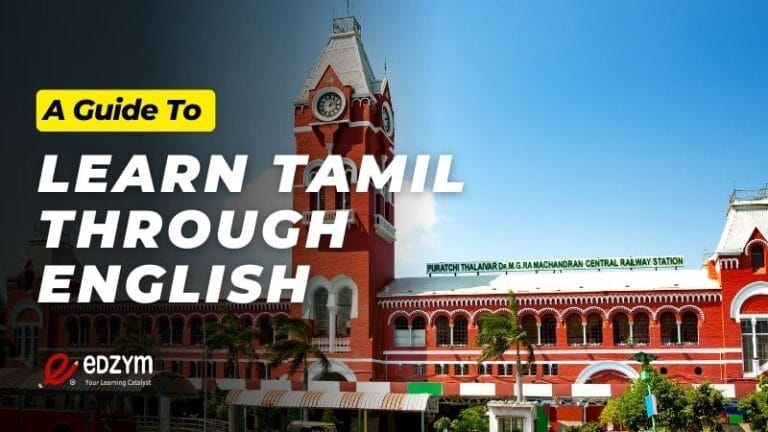
Learn Tamil through English for Beginners – Basics of Tamil Learning
Embark on an exciting journey to master the wonderful Tamil language with our comprehensive guide. Whether you’re a beginner or looking to brush up on your skills, this guide will provide you with the tools and resources you need to learn Tamil effectively through English.

Tamil Letters | 247 Tamil Alphabets: Consonants, Vowels, Numbers & More
Explore the beauty of Tamil letters in this comprehensive guide. Learn about the structure, consonants, vowels, numerals, and symbols of the Tamil script. Discover its cultural significance and an option for learning Tamil online with native tutors. Start your journey today!

Essential Tamil 3-Letter Words – A Beginner’s Guide
Discover essential Tamil 3-letter words with our beginner’s guide. Learn common words, usage tips, and how to practice effectively.

bottom_desktop desktop:[300x250]

Travel Meaning in Tamil
Travel தமிழ் அர்த்தம்.
The word “Travel” in Tamil is பயணம் (Payaṉam).
Here’s a breakdown of the word:
* பயணம் (Payaṉam) is the noun form of the word, which means “travel”, “journey”, or “voyage”. * பயண (Payaṉ) is the verb form, which means “to travel” or “to go on a journey”.
In Tamil, the word பயணம் is commonly used to refer to traveling, whether it’s for business, pleasure, or personal reasons. It can also be used to describe a journey or trip, whether it’s by air, land, or sea.
தமிழில் ‘Travel ‘ என்ற சொல்லின் மொழிபெயர்ப்பு:
உதாரணங்கள்:.
- தமிழில் “பயணம்” என்ற வார்த்தையைப் பயன்படுத்தும் மூன்று தனித்துவமான எடுத்துக்காட்டு வாக்கியங்கள் இங்கே:
- 1. நான் ட்ராவல் செய்யும் ஒன்று பாரிஸ் நகராகும். (Naan travel cheyyum oonru Paris nagarakum) – “I will travel to Paris one day.”
- 2. என் கண்டுக்கால்லாம் ட்ராவல் அடிக்க வேண்டியதில்லை. (En kandukkaalam travel adikka vendiya thillai) – “I don’t need to travel often.”
உருவிணைகள்:
but they are all generally synonymous with “travel” in Tamil., Here are some synonyms for the word “Travel” in Tamil:
1. சுற்றி (Sūrtti) – meaning “to wander” or “to roam” 2. பயணிக்க (Payaṇikk) – meaning “to go on a journey” or “to travel” 3. சமைக்க (Camaiykk) – meaning “to wander” or “to roam” (more poetic or literary usage) 4. அடிச்சுறு (Aṭhiccuru) – meaning “to wander” or “to roam” (more informal or casual usage) 5. ஊரோடு பயணிக்க (Ūrōṭu Payaṇikk) – meaning “to travel on the road” or “to journey” 6. பயண செய்தல் (Payaṇa Ceṉḏal) – meaning “to have a journey” or “to travel”
Note that some of these words may have slightly different connotations or shades of meaning
எதிர்ச்சொற்கள்:
To remain (opposite of traveling and moving around) * விளையாட்டு (Vilaiyatta) – Play, Dwell, Remain (opposite of traveling and moving around) * நிர்பந்தம் (Nirbandham) – Rest, Relaxation, Leisure, Idleness (opposite of traveling and being engaged in activities)
Note that the antonyms may vary depending on the context in which the word “Travel” is used., To stay put, The word “Travel” can have different meanings and antonyms in Tamil depending on the context. Here are a few possible antonyms:
* இருப்பு (Iruppu) – Stay, Inactivity (opposite of traveling and being active) * தங்குதல் (Thanguthal) – To stay
சம்பந்தப்பட்ட வார்த்தைகள்:
- Confetti Meaning in Tamil
- Assent Meaning in Tamil
- Tapestry Meaning in Tamil
- Cambridge Dictionary +Plus
Synonyms and antonyms of travel in English

Word of the Day
Your browser doesn't support HTML5 audio
a very short holiday

Trial, judge, and jury: talking about what happens when a criminal is caught
Learn more with +Plus
- Recent and Recommended {{#preferredDictionaries}} {{name}} {{/preferredDictionaries}}
- Definitions Clear explanations of natural written and spoken English English Learner’s Dictionary Essential British English Essential American English
- Grammar and thesaurus Usage explanations of natural written and spoken English Grammar Thesaurus
- Pronunciation British and American pronunciations with audio English Pronunciation
- English–Chinese (Simplified) Chinese (Simplified)–English
- English–Chinese (Traditional) Chinese (Traditional)–English
- English–Dutch Dutch–English
- English–French French–English
- English–German German–English
- English–Indonesian Indonesian–English
- English–Italian Italian–English
- English–Japanese Japanese–English
- English–Norwegian Norwegian–English
- English–Polish Polish–English
- English–Portuguese Portuguese–English
- English–Spanish Spanish–English
- English–Swedish Swedish–English
- Dictionary +Plus Word Lists
To add ${headword} to a word list please sign up or log in.
Add ${headword} to one of your lists below, or create a new one.
{{message}}
Something went wrong.
There was a problem sending your report.
100 Unique and Creative Travel Words with Beautiful Meanings
Disclaimer: This article includes affiliate links to the products we earnestly love and recommend, meaning at no extra cost to you, we might make a teeny-weeny commission if you click on the link and decide to buy something. The money will be used to sustain this little cozy blog we call our virtual home.
Everyone (who knows me) knows how I love words. I hoard words . Everyone also knows how I love to travel. I eat, drink, and sleep travel 🙂 Here, in this post, I’ve blended two of my passions – words and travel. The post rounds up the creative travel words that describe wanderlust perfectly. You’ll never be at a loss for words while narrating your travel experiences once you equip yourself with these unique words about travel.
Unusual Travel Words with Beautiful Meanings
Wanderlust (n.).
Origin: German Pronunciation: vawn-duh-luhst Meaning: a strong desire to travel
Resfeber (n.)
Origin: Swedish Pronunciation: race-fay-ber Meaning: the restless race of the traveler’s heart before the journey begins, when anxiety and anticipation are tangled together; the nervous feeling before undertaking a journey
Related Read: 27 Cool Swedish Words You Must Know
Strikhedonia (n.)
Origin: Greek Pronunciation: strik-he-don-e-a Meaning: the joy of being able to say “to hell with it”
Eleutheromania (n.)
Origin: Greek Pronunciation: eleuthero-ma-nia Meaning: an intense and irresistible desire for freedom
Origin: Hawaiian Pronunciation: ak-i-hi Meaning: listening to directions and then walking off and promptly forgetting them

Exulansis (n.)
Origin: The Dictionary of Obscure Sorrows Pronunciation: exu-lan-sis Meaning: the tendency to give up trying to talk about an experience because people are unable to relate to it — whether through envy or pity or simple foreignness—which allows it to drift away from the rest of your life story, until the memory itself feels out of place, almost mythical, wandering restlessly in the fog, no longer even looking for a place to land.
Hodophile (n.)
Origin: Greek Pronunciation: hodo-phile Meaning: a lover of roads; one who loves to travel
Saudade (n.)
Origin: Portuguese Pronunciation: sau-da-de Meaning: a nostalgic longing for something or someone that was loved and then lost, with the knowledge that it or they might never return; “the love that remains”
Fernweh (n.)
Origin: German Pronunciation: feirn-veyh Meaning: an ache for distant places; a longing for far-off places; an urge to travel even stronger than wanderlust; being homesick for a place you’ve never been
Selcouth (adj.)
Origin: Old English Pronunciation: sel-kooth Meaning: unfamiliar, rare, strange, and yet marvelous

Serendipity (n.)
Origin: English Pronunciation: seh-ruhn-di-puh-tee Meaning: finding something good without looking for it
Pilgrimage (n.)
Origin: Latin Pronunciation: pil-gruh-mij Meaning: a journey, especially a long one, made to some sacred place as an act of religious devotion
Gökotta (n.)
Origin: Swedish Pronunciation: yo-kot-ah Meaning: literally translates to the early cuckoo morning or dawn picnic to hear the first birdsong; the act of rising early in the morning to hear the birds sing at sunrise and appreciate nature
Schwellenangst (n.)
Origin: German Pronunciation: shwel-en-ahngst Meaning: fear of embarking on something new; fear of crossing a threshold
Voyage (n.)
Origin: Latin Pronunciation: voy-ij Meaning: a long journey involving travel by sea or in space

Origin: Japanese Pronunciation: yoo-gehn Meaning: a profound awareness of the universe that triggers emotional responses too deep, powerful, and mysterious for words
Origin: Danish Pronunciation: hue-gah Meaning: the Danish practice of creating warmth, connection, and well-being; a complete absence of anything annoying or emotionally overwhelming; taking pleasure from the presence of gentle, soothing things; celebrating the everyday
You Might Like: Cool Danish Words We Need in English Now
Vagary (n.)
Origin: Latin Pronunciation: va-ga-re Meaning: an unpredictable instance, a wandering journey; a whimsical, wild, and unusual idea, desire, or action
Origin: Dictionary of Obscure Sorrows Pronunciation: mo-rii Meaning: the desire to capture a fleeting experience
“With every click of the shutter, you’re trying to press pause on your life. If only so you can feel a little more comfortable moving on living in a world stuck on the play.”
Musafir (n.)
Origin: Arabic Pronunciation: mu-sa-fir Meaning: traveler
Musafir remains one of my most favorite words associated with travel.

Odyssey (n.)
Origin: Greek Pronunciation: aw-duh-see Meaning: a long and eventful or adventurous journey or experience
Sonder (n.)
Origin: The Dictionary of Obscure Sorrows Pronunciation: sohn-dehrr Meaning: the realization that each random passerby is living a life as vivid and complex as your own—populated with their own ambitions, friends, routines, worries and inherited craziness—an epic story that continues invisibly around you like an anthill sprawling deep underground, with elaborate passageways to thousands of other lives that you’ll never know existed, in which you might appear only once, as an extra sipping coffee in the background, as a blur of traffic passing on the highway, as a lighted window at dusk.
Gadabout (n.)
Origin: Middle English Pronunciation: gad-uh-bout Meaning: a habitual pleasure-seeker; a person who moves about restlessly and aimlessly, especially from one social activity to another; a person who travels often or to many different places, especially for pleasure
Acatalepsy (n.)
Origin: Greek Pronunciation: ey-kat-l-ep-see Meaning: incomprehensibleness; the impossibility of comprehending the universe; the belief that human knowledge can never have true certainty

Origin: Greek Pronunciation: noh-mad Meaning: a person who does not stay long in the same place; a wanderer
Cockaigne (n.)
Origin: Middle English Pronunciation: ko-keyn Meaning: an imaginary or fabled land of luxury and idleness
Origin: The Dictionary of Obscure Sorrows Pronunciation: o-ni-sm Meaning: the awareness of how little of the world you’ll experience
“The frustration of being stuck in just one body, that inhabits only one place at a time, which is like standing in front of the departures screen at an airport, flickering over with strange place names like other people’s passwords, each representing one more thing you’ll never get to see before you die—and all because, as the arrow on the map helpfully points out, you are here.”
Nemophilist (n.)
Origin: Greek Pronunciation: ni-mo-fi-list Meaning: a haunter of the woods; one who loves the forest for its beauty and solitude
Trouvaille (n.)
Origin: French Pronunciation: troo-vee Meaning: a lucky find; a chance encounter with something wonderful and valuable

Safarnama (n.)
Origin: Persian Pronunciation: su-fur-nama Meaning: travelogue; an account of the travels
Smultronställe (n.)
Origin: Swedish Pronunciation: smool-tron-stall-uh Meaning: literally translates to place of wild strawberries; a special place discovered, treasured, returned to for solace and relaxation; a personal idyll free from stress or sadness
Livsnjutare (n.)
Origin: Swedish Pronunciation: livs-noo-tuhreh Meaning: literally translates to enjoyer of life; someone who loves life deeply and lives it to the extreme
Wayfarer (n.)
Origin: Old English Pronunciation: wey-fair-er Meaning: someone who travels, especially on foot
Kopfkino (n.)
Origin: German Pronunciation: kof-kino Meaning: literally translates to head cinema; the act of playing out an entire scenario in your mind

Hireath (n.)
Origin: Welsh Pronunciation: her-rith Meaning: a homesickness for a home to which you cannot return, a home which maybe never was; the nostalgia, the yearning, the grief for the lost places of your past
Peripatetic (n.)
Origin: Greek Pronunciation: per-uh-puh-tet-ik Meaning: a person who travels from place to place
Luftmensch (n.)
Origin: Yiddish Pronunciation: looft-mensh Meaning: literally translates to an air person; an impractical dreamer with improbable plans and no business sense; one with their head in the clouds
Solivagant (adj.)
Origin: Latin Pronunciation: soh-lih-va-ghent Meaning: wandering alone
Waldeinsamkeit (n.)
Origin: German Pronunciation: vahyd-ahyn-zahm-kahyt Meaning: literally translates to woodland solitude; the feeling of being alone in the woods

Ecophobia (n.)
Origin: English Pronunciation: eco-phobia Meaning: a fear or dislike of one’s home
Origin: Japanese Pronunciation: u-key-yo Meaning: literally translates to the floating world; living in the moment, detached from the bothers of life

Meraki (n.)
Origin: Greek Pronunciation: may-rah-kee Meaning: to do something with soul, creativity, and love; when you leave a piece of yourself in your work
Wabi-sabi (n.)
Origin: Japanese Pronunciation: wabe-sabe Meaning: finding beauty in imperfections; an acceptance of things as they are
Vorfreude (n.)
Origin: German Pronunciation: vor-froy-dah Meaning: the joyful, intense anticipation that comes from imagining future pleasures

Cosmopolitan (n.)
Origin: English Pronunciation: koz-muh-pahl-i-ten Meaning: belonging to all the world; not limited to just one part of the world; someone who has traveled a lot and feels at home in any part of the world
Peregrinate (v.)
Origin: Middle English Pronunciation: per-i-gruh-neyt Meaning: to travel or wander from place to place
Sojourn (n.)
Origin: Latin Pronunciation: soh-jurn Meaning: a temporary stay
Shinrin-yoku (n.)
Origin: Japanese Pronunciation: shin-rin-yo-ku Meaning: literally translates to forest bathing; a leisurely trip to the forest for recreation, relaxation, meditation, and therapy
Origin: Thai Pronunciation: ti-eow Meaning: to wander or roam around in a carefree way

Origin: Serbian Pronunciation: mir-ak Meaning: enjoyment of the simple things in life; the feeling of bliss and sense of oneness with the universe that comes from the simplest of pleasures; the pursuit of small, daily pleasures that all add up to a great sense of happiness and fulfillment
Dépaysement (n.)
Origin: French Pronunciation: de-pe-iz-ma Meaning: the feeling that comes from not being in one’s home country; disorientation due to experience of unfamiliar surroundings; being out of your element like a fish out of water
Itinerant (n.)
Origin: Latin Pronunciation: ai-ti-nr-uhnt Meaning: one who travels from place to place
Numinous (adj.)
Origin: Latin Pronunciation: noo-muh-nuhs Meaning: having a strong religious or spiritual or supernatural quality; indicating or suggesting the presence of divinity; describing an experience that makes you fearful yet fascinated, wed yet attracted – the powerful, personal feeling of being overwhelmed and inspired
Heimweh (n.)
Origin: German Pronunciation: haim-ve Meaning: homesickness; nostalgia; a longing for home

Sprachgefühl (n.)
Origin: German Pronunciation: shprahkh-guh-fyl Meaning: the character and spirit of a language; an intuitive sense of the rule and rhythm of language
Mångata (n.)
Origin: Swedish Pronunciation: mo-an-gaa-tah Meaning: the glimmering, roadlike reflection of the moonlight on water
Dromomania (n.)
Origin: Greek Pronunciation: dro-mo-ma-nia Meaning: an uncontrollable impulse or desire to wander or travel
Sehnsucht (n.)
Origin: German Pronunciation: zen-zukt Meaning: the inconsolable longing in the human heart for we know not what; a yearning for a far, familiar, non-earthly land one can identify as one’s home
Dérive (v.)
Origin: French Pronunciation: de-rive Meaning: literally translates to drift; a spontaneous and unplanned journey where the traveler leaves their life behind for a time to let the spirit of the landscape and architecture attract and move them

Absquatulate (v.)
Origin: English Pronunciation: ab-skwoch-uh-leyt Meaning: to leave abruptly without saying goodbye
Thalassophile (n.)
Origin: Greek Pronunciation: thal-as-o-fahyl Meaning: a lover of the sea; someone who loves the sea or ocean
Yoko meshi (n.)
Origin: Japanese Pronunciation: yoh-koh-mesh-ee Meaning: literally translates to a meal eaten sideways; refers to the peculiar stress of speaking a foreign language
Forelsket (v.)
Origin: Norwegian Pronunciation: phor-rel-sket Meaning: the euphoria you experience when you are first falling in love
Read More: 14 Beautiful Norwegian Words We Need in English Now
Rückkehrunruhe (n.)
Origin: The Dictionary of Obscure Sorrows Pronunciation: rukee-ren-ruhee Meaning: the feeling of returning home after an immersive trip only to find it fading rapidly from your awareness—to the extent you have to keep reminding yourself that it happened at all, even though it felt so vivid just days ago—which makes you wish you could smoothly cross-dissolve back into everyday life, or just hold the shutter open indefinitely and let one scene become superimposed on the next, so all your days would run together and you’d never have to call cut.

Eudaimonia (n.)
Origin: Greek Pronunciation: u-de-mon-e-a Meaning: literally translates to human flourishing; a contented state of being happy, healthy, and prosperous
Sturmfrei (adj.)
Origin: German Pronunciation: stirm-fra Meaning: literally translates to storm-free; the freedom of not being watched by a parent or superior; being alone in a place and having the ability to do what you want
Origin: Mandarin Chinese Pronunciation: yu-yi Meaning: the desire to see with fresh eyes, and feel things just as powerfully as you did when you were younger-before expectations, before memory, before words
Photophile (n.)
Origin: English Pronunciation: pho-to-phile Meaning: Derived from the biological term “photophilic” for an organism that thrives in full light, it means a person who loves photography and light
Traipse (v.)
Origin: Unknown Pronunciation: trayps Meaning: to walk or go aimlessly or idly or without finding or reaching one’s goal

Neophile (n.)
Origin: Greek Pronunciation: neo-phile Meaning: one who loves or has a strong affinity for anything new or novel
Ballagàrraidh (n.)
Origin: The Dictionary of Obscure Sorrows Pronunciation: bal-la-ga-rye Meaning: the awareness that you are not at home in the wilderness
Vacilando (v.)
Origin: Spanish Pronunciation: vah-see-lan-doh Meaning: to wander or travel with the knowledge that the journey is more important than the destination
Quaquaversal (adj.)
Origin: Latin Pronunciation: kwey-kwuh-vur-sul Meaning: moving or happening in every direction instantaneously
Coddiwomple (v.)
Origin: English Pronunciation: kod-ee-wom-pul Meaning: to travel in a purposeful manner towards a vague destination

Vemödalen (n.)
Origin: The Dictionary of Obscure Sorrows Pronunciation: ve-mo-da-len Meaning: the fear that everything has already been done
“The frustration of photographing something amazing when thousands of identical photos already exist—the same sunset, the same waterfall, the same curve of a hip, the same closeup of an eye—which can turn a unique subject into something hollow and pulpy and cheap, like a mass-produced piece of furniture you happen to have assembled yourself.”
Commuovere (v.)
Origin: Italian Pronunciation: com-muo-ve-re Meaning: a story that touches or stirs you and moves you to tears
Natsukashii (adj.)
Origin: Japanese Pronunciation: nat-soo-kash-ee Meaning: of some small thing that brings you suddenly, joyously back to fond memories, not with a wistful longing for what’s past, but with an appreciation of the good times
Querencia (n.)
Origin: Spanish Pronunciation: keh-rehn-syah Meaning: a place from which one’s strength is drawn, where one feels at home; the place where you are your most authentic self
Novaturient (adj.)
Origin: Latin Pronunciation: no-vah-ter-y-ent Meaning: desiring or seeking powerful change in one’s life, behavior, or situation

Komorebi (n.)
Origin: Japanese Pronunciation: koh-moh-ray-bee Meaning: sunlight that filters through the leaves of trees
Flâneur (n.)
Origin: French Pronunciation: flah-nœr Meaning: one who strolls around aimlessly but enjoyably, observing life and his surroundings
Hanyauku (v.)
Origin: Kwangali Pronunciation: ha-ahn-yoh-kuu Meaning: to walk on tiptoes across the warm sand
Dès Vu (n.)
Origin: Dictionary of Obscure Sorrows Pronunciation: des-vu Meaning: the awareness that this will become a memory
Gallivant (v.)
Origin: English Pronunciation: gal-uh-vant Meaning: go around from one place to another in the pursuit of pleasure or entertainment

Nefelibata (n.)
Origin: Portuguese Pronunciation: ne-fe-le-ba-ta Meaning: literally translates to cloud-walker; one who lives in the clouds of their own imagination or dreams, or one who does not obey the conventions of society, literature, or art; an unconventional or unorthodox person
Petrichor (n.)
Origin: English Pronunciation: pet-ri-kawr Meaning: a distinctive scent, usually described as earthy, pleasant, or sweet, produced by rainfall on very dry ground; the smell of earth after rain
Circumnavigate (v.)
Origin: Latin Pronunciation: suh-kuhm-na-vuh-gayt Meaning: to sail or travel all the way around the world
Hitoritabi (n.)
Origin: Japanese Pronunciation: hitori-tabi Meaning: traveling alone; a solitary journey
Torschlusspanik (n.)
Origin: German Pronunciation: tursh-luss-pan-ik Meaning: literally translates to gate-closing panic; a sense of anxiety or fear caused by the feeling that life’s opportunities are passing by and diminishing as one ages

Globetrotter (n.)
Origin: English Pronunciation: globe-trawt-uh Meaning: a person who travels widely
Menggonceng (v.)
Origin: Indonesian Pronunciation: menggon-ceng Meaning: to travel by getting a free ride, usually on the back of a friend’s bicycle
Vagabond (n.)
Origin : Old French Pronunciation: va-guh-baand Meaning: a person who wanders from place to place without a home or job
Gemütlichkeit (n.)
Origin: German Pronunciation: guh-myt-likh-kahyt Meaning: a feeling of cozy warmth, friendliness, and good cheer with a sense of belonging
Erlebnisse (n.)
Origin: German Pronunciation: ayr-leeb-nis-eh Meaning: an experience that one feels most deeply, and, in a sense, ‘lives through’ – not just mere life experience, but something memorable which happens to someone

Livslogga (v.)
Origin: Swedish Pronunciation: Meaning: literally translates to life log; continually capturing and documenting one’s life through pictures
Poudrerie (n.)
Origin: French Pronunciation: pu-dre-ri Meaning: fallen snow blown by the wind from the ground, appearing like fine powdery particles across the streets and highways
Yeoubi (n.)
Origin: Korean Pronunciation: yu-bi Meaning: literally translates to fox rain; a sunshower – the event of having a light rain while the sun is still shining
Morriña (n.)
Origin: Galician Pronunciation: mo-rina Meaning: a very deep, nostalgic, and melancholic homesickness experienced as one intensely longs to return home; “a ‘saudade’ so strong it can even kill”
Víðsýni (adj.)
Origin: Icelandic Pronunciation: vith-see-nee Meaning: a panoramic view
Xenophilia (n.)
Origin: Greek Pronunciation: zen-uh-fil-ee-uh Meaning: love for, attraction to, or appreciation of foreign people, manners, customs, or cultures

Do you have other words that describe travel? Send them over! We’d be happy to add them to our list of words for travel lovers.
Save the Rare Words Related to Travel to Pinterest

Sharing is nice 🙂 If you have liked our post please share it with your friends and family and feel free to subscribe to our mailing list or you can also follow our stories on Facebook , Instagram , Pinterest , and Twitter .
Anjali Chawla
Leave a Comment Cancel reply
© 2024 Travel Melodies. All Rights Reserved.
As an Amazon Associate, we earn from qualifying purchases.

Unusual & Creative Travel Words that you must know in 2019
Blogging Tips & SEO
Last Updated on: Apr 11, 2019
About this blog: This contains 38 unique and creative travel words that you can use in your travel vocabulary. Use them in your travel captions or use them for naming your blog .
Oh, yes! We love to travel. And we love to get amazed at new experiences. We love to look over in awe at the jaw-dropping scenery before us. At times, words fail. The feeling, the emotions that we encounter after scaling a summit, or after having a scuba diving experience cannot often be described with words. I am sure all of us have these moments when we fall short of words. But there are some beautiful and creative travel words that describe these various feelings very well. Some of these words might not have English equivalents.
As a traveller and writer, I often keep looking for words to describe my feelings. The more I look into these words, the more I fall in love with them. These words have such powerful emotions and feelings! So we decided to share some of our favourite unusual and creative travel words with you.
Table of Contents
UNUSUAL AND CREATIVE TRAVEL WORDS
Peregrinate (v.).
Origin: Latin
Definition: To travel or wander around from place to place
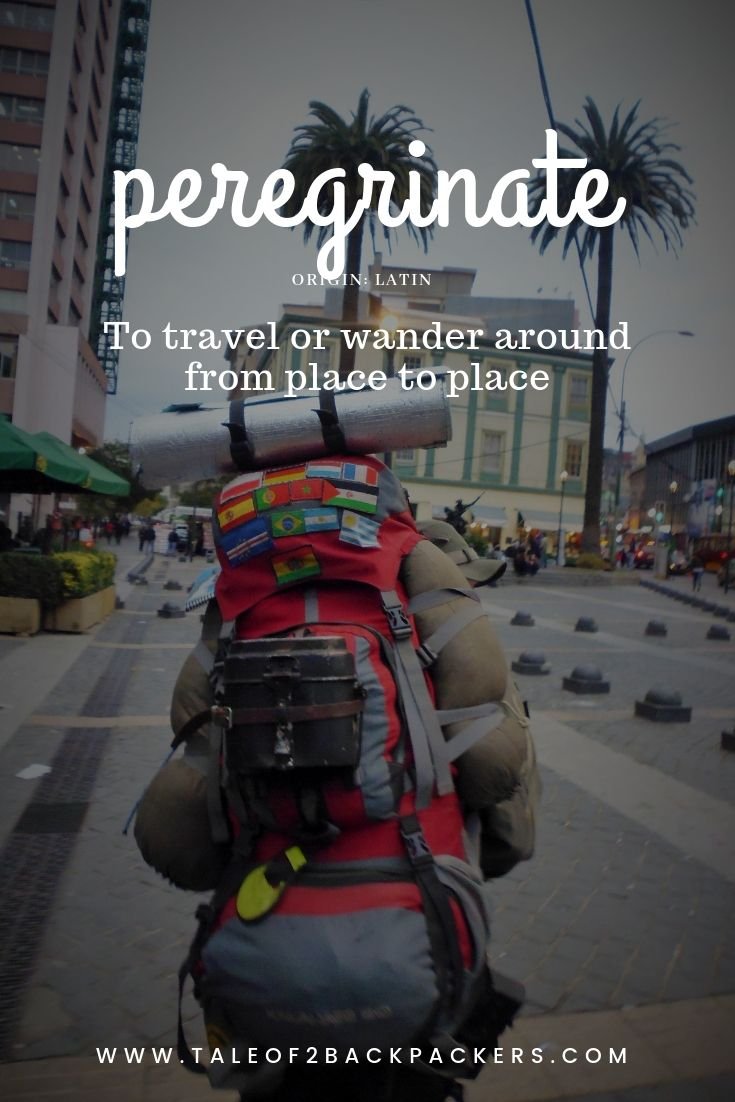
The feeling we have whenever we are visiting any new place. We love to wander around and discover the hidden and not so hidden gems. And Darjeeling happens to be one of our favourite places to wander around. What’s yours?
Nemophilist (n.)
Origin: English
Definition: One who is fond of the forest

Serendipity (n.)
Definition: The fact of finding interesting or valuable by chance

Trouvaille (n.)
Origin: French
Definition: Something lovely discovered by chance
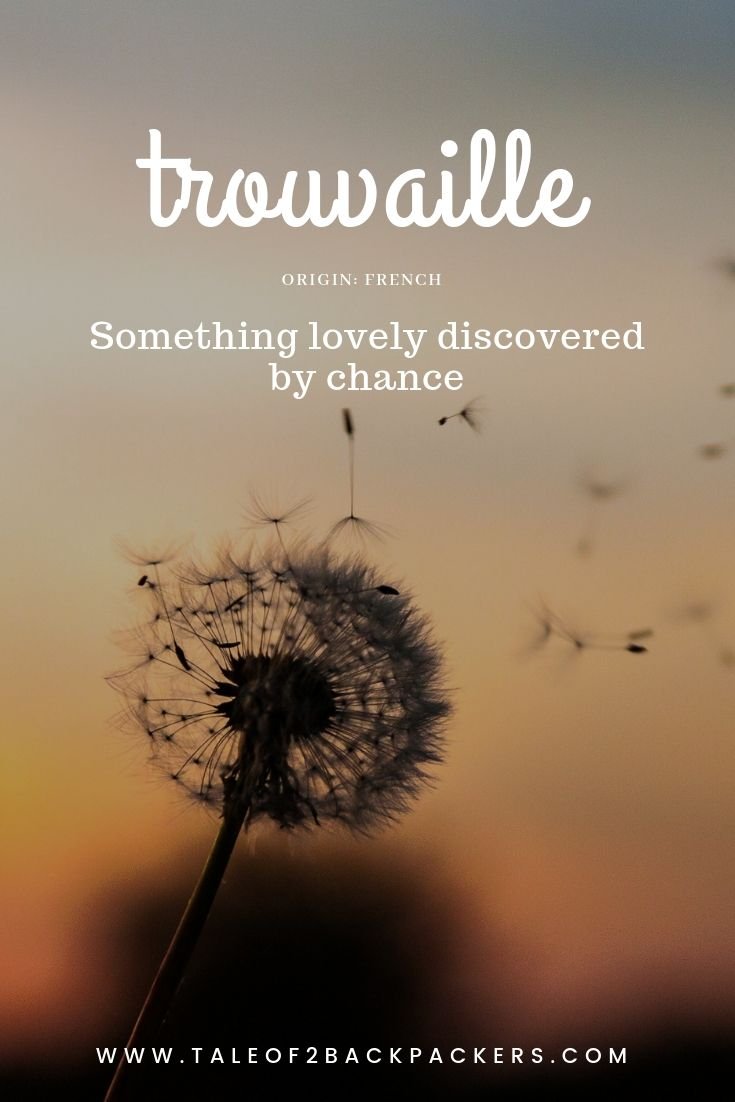
These two words are so close to our hearts. That we would be together was destiny, but our meeting was definitely serendipity! We had been travelling together for a long time, but it was only after our Amarnath Yatra , that we truly realized what travel means to us and what we actually want of our life.
Eudaimonia (n.)
Origin: Greek
Definition: The contented happy state when you travel

Eleutheromania (n.)
Definition: The intense desire for freedom

These two Greek words so wonderfully summarize our feeling when we travel. Travelling makes us contented and happy.
Sonder (n.)
Origin: Unknown
Definition: The realization that each random passerby is living a life as vivid and complex as your own

Resfeber (n.)
Origin: Swedish
Definition: The tangled feelings of fear and excitement before a journey

This always happens before a journey. There is a perpetual state of excitement as well as nervousness before I start any journey. And I enjoy both the state.
Before our trip to Uzbekistan, I had a bad case of travel anxiety after I read about Airbnb scams. It was only after I found out methods to detect Airbnb scam , I caught a break.
Fernweh (n.)
Origin: German
Definition: An urge to travel even stronger than wanderlust ; farsickness

Dérive (n.)
Definition: To drift unplanned, only led by the landscape and architect around you.

Have you done this? Have you travelled without any fixed plan? Often it is the unexpectedness of a journey that makes it even better. When we went to Majuli , we did not know where we would visit next. It was an impromptu decision to next visit Meghalaya . And this time we decided to give Shillong and Cherrapunji a miss and visit the offbeat places in Meghalaya . It was surely a memorable trip!
Solivagant (adj.)
Definition: Wandering alone. A solitary adventurer who travels and wanders the globe.

Strikhedonia (n.)
Definition: The joy of being able to say “to hell with it”

The feeling we had when we visited Ladakh !
Numinous (n.)
Definition: The powerful, personal feeling of being overwhelmed and inspired
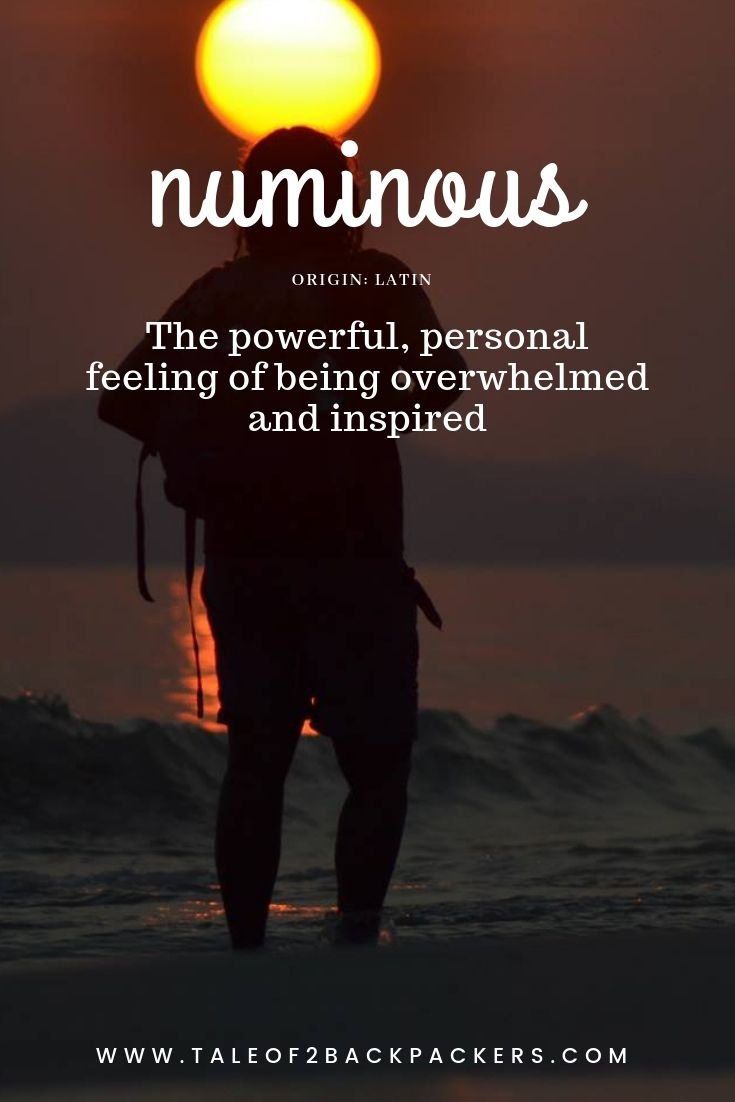
I had this feeling when I trekked the Rupin Pass summit . It was an overwhelming experience to stand there and look at the Kinner-Kailash range before me.
Forelsket (n.)
Origin: Norwegian
Definition: The euphoria you experience when you are first falling in love

This is such a beautiful and creative travel word. The first time we fell in love with each other, it was confusing. But the tangled emotion that I was feeling at that time was probably known as “forelsket”! And I think it is the same feeling when we fall in love with each other after completing every trek or doing something that we never thought we would do.
Hireath (n.)
Origin: Welsh
Definition: A homesickness for a home which you cannot return, a home which maybe never was.

Sehnsucht (n.)
Definition: A wistful longing and yearning in the heart for travels that have been and travels to come.
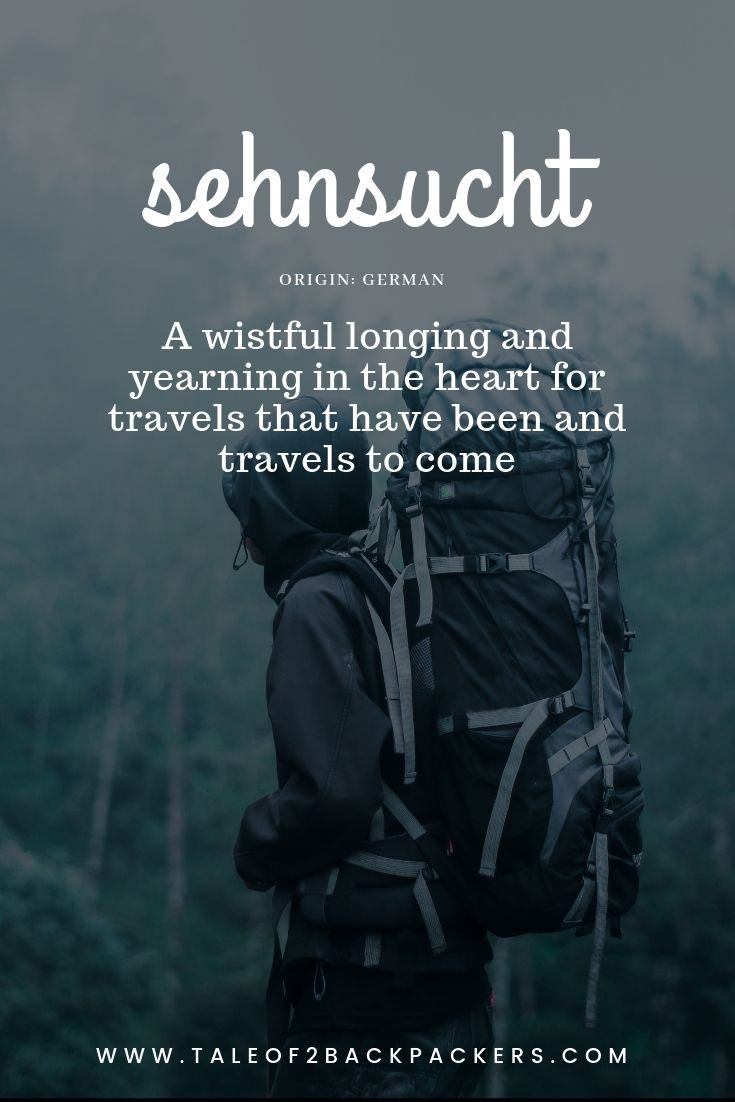
Livsnjutare (n.)
Definition: Someone who loves life deeply and enjoys life

Sturmfrei (n.)
Definition: The freedom of being alone and having the ability to do whatever you want.

Sometimes, being alone is the best thing that we can gift ourselves.
Coddiwomple (v.)
Definition: To travel in a purposeful manner towards a vague destination

Nefelibata (n.)
Origin: Portugese
Definition: One who lives in the cloud of their own imagination; an unconventional person

This word so describes me. I love to live in my own imagination.
Hodophile (adj.)
Definition: A lover of roads. One who loves to travel.

Schwellenangst (n.)
Definition: Fear of crossing a threshold to embark on something new.

Don’t we all have the fear while starting anything new? It might be a new job, or a new life at a different city, or even changing our lifestyle. I was always very complacent with my life with a high paying job. But there was a void somewhere. Even after I knew that I have to take the leap, the fear hold me back. The fear of uncertainty was keeping me back from doing what I loved.
Today, I have crossed that threshold. And let me tell you the joy that it brings is totally worth all the difficulties and problems and hard work that went. What is the fear that is holding you back?
Vagary (v.)
Definition: A wandering or roaming journey

Saudade (n.)
Definition: A nostalgic longing to be near something or someone who is distant.

Origin: Danish
Definition: The cosy feeling you get when you are enjoying the good things in life with friends

Commuovere (v.)
Origin: Italian
Definition: To stir, to touch, to move to tears

The feeling we had after completing the Chadar Frozen River Trek .
Origin: Japanese
Definition: A profound and mysterious sense of the beauty of the universe
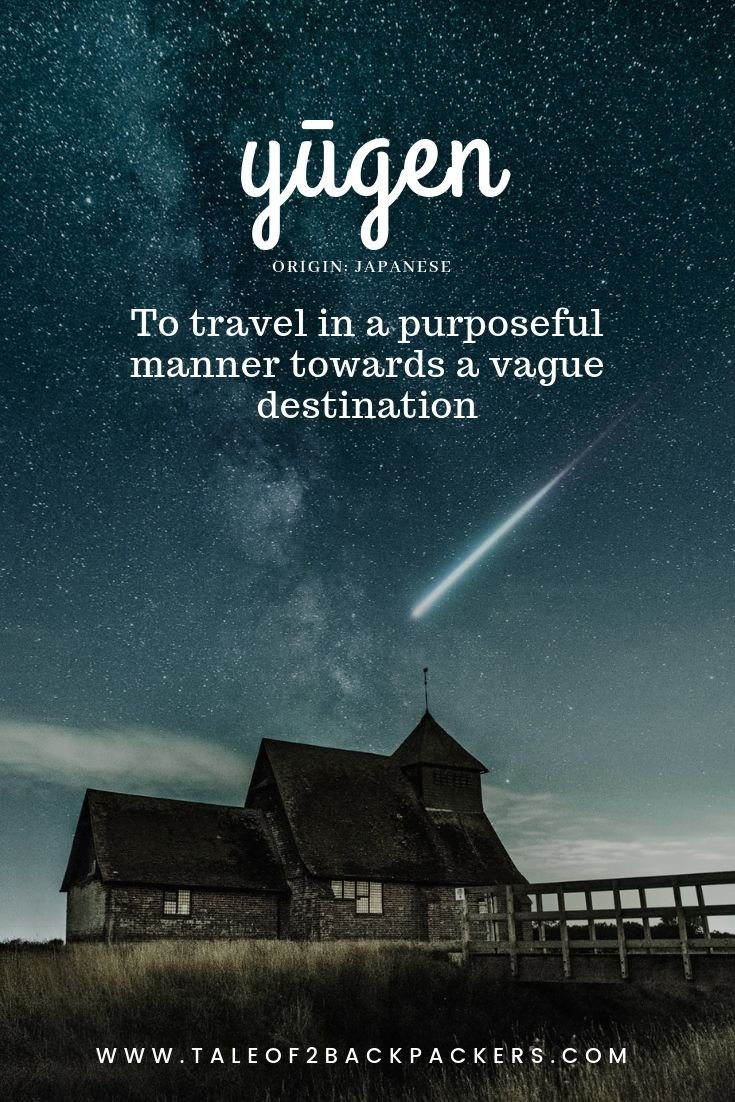
Definition: Awareness of how little of the world you will experience

These two words sum it all. The universe, the world is so mysteriously beautiful. We can feel and experience only a part of this beauty!
Petrichor (n.)
Definition: The smell of earth after rain

Flâuner (n.)
Definition: A person of leisure, deliberately aimless, simply wandering the streets, soaking in the city
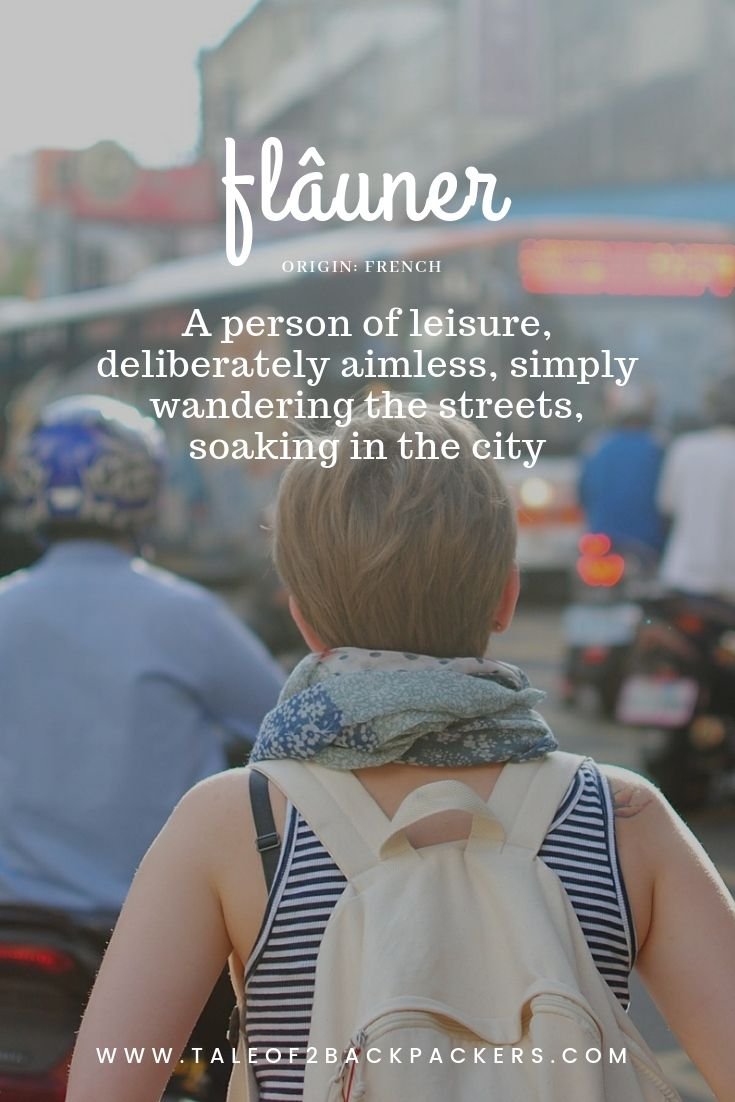
Whenever we visit any city, we love to walk around. It is the best way to discover the charm of a city. We loved to roam around Yangon and explore the city on foot discovering its gems, hidden or otherwise!
Sometimes Kolkata , our hometown does this to us. We simply wander around, soaking in the little delights, wandering around the lanes and bye lanes and falling in love over and over again with the city. And so does Delhi !
Jijivisha (n.)
Origin: Sanskrit
Definition: The strong eternal desire to live and continue living

Rasasvada (n.)
Definition: The taste of bliss in the absence of all thoughts
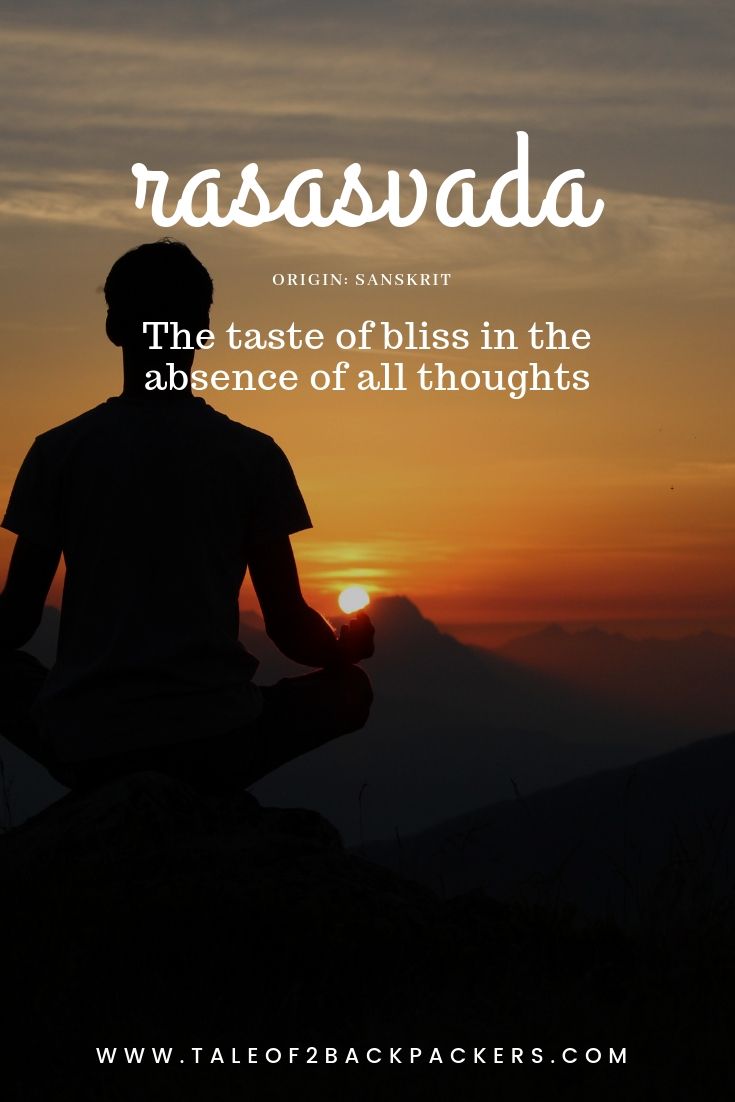
Exactly what we felt after seeing the Everest and Kanchenjunga ranges in front of us from the Phalut. The Sandakphu-Phalut Trek is a great experience.
Smultronställe(n.)
Definition: Lit. “ Place of wild strawberries ”; a special place discovered, treasured, returned to for solace and relaxation; a personal idyll free from stress and sadness.
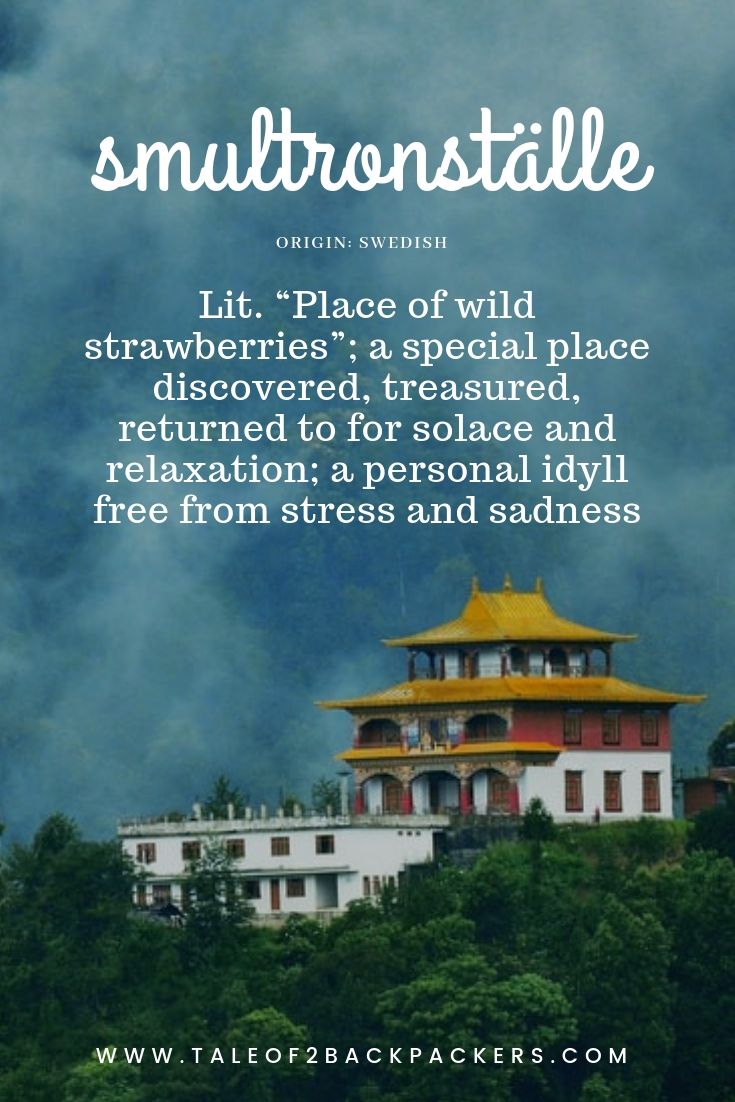
Darjeeling and Sikkim is our “place of wild strawberries”. What is yours?
Querencia (adj.)
Origin: Spanish
Definition: A place where one feels safe, A place where one feels at home

Musafir (n.)
Origin: Urdu
Definition: Traveller

Vuslat (n.)
Origin: Turkish
Definition: A union or reunion after being apart for a long time with one’s beloved
This is one of my favourite creative travel words.

Thalassophile (n.)
Definition: A lover of ocean

Waldeinsamkeit (n.)
Definition: The feeling of being alone in the woods

So did you find your travel inspiration from these beautiful and unusual travel words? What is your favourite? Let us know in comments.
Pin this post for a later dose of inspiration!

Reproduction of the content, including the photographs without prior consent/permission of the writer and photographer, is not encouraged at all and a violation of the same will attract legal action. If you need anything, Contact Us .

Hey! we’re Agni & Amrita.
We have been travelling together since the last 15 years and writing independent and personal travel content since 2014. Travel is one of the best teachers and through this blog, we aim to share our experiences and travel tips. We encourage you to travel more and see the world through your eyes and not through filtered templates.
Find more about us.
RELATED POSTS

Travel Blog SEO for 2023 – Tips on How to Increase Your Traffic?
If you have found this page, then in all probability you already have a travel blog and now looking forward towards growing your blog. The most important aspect of growing your website and attracting traffic is Search Engine Optimization or SEO. Whether you are a...
Travel Blog Name Ideas – How to choose awesome Travel Blog Names?
So you are thinking of starting a travel blog? I would say that it is a great decision. Starting a travel blog and continuing it through 5 years has been one of the best decisions of our life. And we always encourage others to start a travel blog. This article is all...
How to Start a Travel Blog in 2023? Things We Wish We Had Known
We love travelling and we have been doing it for more than a decade. Earlier the travel stories used to find a place in the pages of my diary. But honestly, starting a travel blog was one of the best decisions we had made almost 6 years back. Travel blogging has...
26 Comments
If you love to travel and excited to know different places in world then pack your bag and travel to India. India the birth place of yoga. Good for peace your mind and relaxing body.
Brilliant post, some of these descriptive words I read for the first time. Bookmarked for future reference. Thanks for Sharing.
Thank you Anahita. Glad that you liked the post.
These are indeed words that provide full expression to the meaning of travel. Thanks for adding to my vocabulary. this is indeed the serendipity of reading travel blogs.
Thank you Sandy and Vyjay!
This post was such a treat! I love travel and I love words, and it was nice to recognise a few that I knew, and learn new ones that I didn’t!
Thank you so much! So glad that you liked the post.
I am not just inspired but so well educated too now. Y next travel will now be so well-informed.
Thank you Sanjay!
Thanks for sharing this, great to know these word and their meaning. And yes I can say now I am Nemophilist. 🙂
Thank you Sundeep!
That is a very unique topic for a blog. Though I would want to identify myself with all the term, but I find myself closest to be a Nemophilist and Trouvaille. I also identify with Resfeber. No matter how much I have travelled, I still get a little nervous (and excited) before a foreign trip.
Thanks Abhinav. I can understand that nervous and excited feeling before a foreign trip!
Such words , very useful must say. I love to read and learn new things. These will definitely help me to increase my vocab.
Thank you Pamela!
Woow so many beautiful, unique travel words i am unaware off. Love it
Thank you Gurjeet!
Wow that made for an interesting read. Adding them to my dictionary right away!
Thanks so much.
Thanks for enhancing my vocabulary.. none them was familiar to me so far.
Thank you Sapna! I did not know a few before writing this.
Always admire your writting skills and this time thanks for introducing new words in my dictionary. Great way to increase ones vocabulary with pictures origin and all.
Thank you Pallavi. So glad that you liked the post.
Excellent post..very informative!!
Amazing list! This should keep me busy for a while. I would like to add French noun Flânerie – Aimless strolling or sauntering without a set plan or defined destination; walking at a leisurely pace, simply observing as you’re being taken along. Sometimes I write about similar topics. Here is an example post I wrote in case you or any of your readers find it interesting. Our content complements each other nicely, perhaps we can collab in some way in the future. Keep up the good work. Can’t wait to see something new from you! Cheers!
Thank you so much for the comment and another beautiful word. You blog is amazing too. Maybe we can connect over for a collab in some way. Looking forward.
Submit a Comment Cancel reply
Your email address will not be published. Required fields are marked *
Save my name, email, and website in this browser for the next time I comment.
Submit Comment
This site uses Akismet to reduce spam. Learn how your comment data is processed .

IMAGES
COMMENTS
Thanni - Drink. Thoongu - Sleep. Kālai vaṇakkam - Good morning. Here are some extra vocabulary words to use in your arsenal of Tamil language words! "Vandhaal" - This means "arrived" in Tamil. Use this word when you reach your destination. "Theru" - This means "street" in Tamil.
Related தவளைகள் (Frogs) பற்றி பலரும் அறிந்திடாத 12 சுவாரசிய தகவல்கள்! அ.கோகிலா - May 31, 2024
Transportation . If you're a traveler looking to explore Tamil Nadu, acquiring phrases related to transportation can significantly improve your experience.Tamil Nadu, a vibrant state in southern India, offer a rich cultural heritage, bustling urban centers, and scenic beauty for travellers making them enticing destinations for exploration.
Recommended Playlists from LearnLanguageOutLoudLong Crash Course: https://youtube.com/playlist?list=PLb4_RwajVHlfumS-p1965TtVJCwKW0Yd2Learn by Stories: https...
Essential Tamil Words for Tourists Tamil is a language rich in tradition and culture, spoken predominantly in the southern part of India and the northern and eastern parts of Sri Lanka. As a tourist in these regions, knowing a few key Tamil phrases can enhance your travel experience, helping you to connect better with local people.
நண்பர்களுக்கு பயண வாழ்த்துக்கள் (Travel wishes for friends) 15. பேருந்தில் ஏறிய ...
To learn Tamil language, common vocabulary is one of the important sections. Common Vocabulary contains common Tamil words that we can used in daily life. Travel are one part of common words used in day-to-day life conversations. If you are interested to learn Travel vocabulary words in Tamil, this place will help you to learn all Travel vocabulary words in English to Tamil language.
Here are some useful Tamil words and phrases that is used in day to day lives. I've used the simple Tamil words used by public so linguistic geniuses don't get offended. Words to Know : Hello ...
Commonly used various English phrases in Tamil with English transliteration and the native speaker's voice | Vol. 1 - 1 to 25 | Learn Tamil through English |...
Saappaaadu/Thanni: The words mean food and drink respectively. Vanakkam: A greeting that can be used any time of the day. For 'good morning', a prefix 'kaalai' is to be added to make it 'kaalai vanakkam' and for 'good evening', the equivalent is 'maalai vanakkam'. Vendaam: This means 'no'. This will turn out to be an ...
Common Travel Phrases-01 Tamil and English Travel Words May 09, 2012 Thayumanasamy Somasundaram www.somasundaram.name P a g e | 5 5 Anchu Blue Neelam 6 Aaru Yellow Mancha 7 Aelu Pink Rose 8 Aettu Brown Brown 9 Onpathu 10 Patthu 100 Nuru 200 Rendu Nuru 300 Munu Nuru 1000 Aeiyaram ...
Tamil Words For Sea Transport. People use sea transportation to travel long distances. Moreover, the ship is the world's cheapest and most widely used transportation to travel long distances. So, you must know the definitions and means of all the words related to sea transportation.
பயணம்போக, - பண்ண, to go on a journey, to travel, to be lost, to depart this life. Searched word பயணம் Miron Winslow - A Comprehensive Tamil and English Dictionary
Knowing the basic words in Tamil opens the door to a large body of art in the Tamil language. Tamil is a Dravidian language spoken primarily by the Tamil people of South Asia. In the four other South Indian states, Tamil is spoken by a minority population. Due to the popularity of Tamil, you should learn the basic words in Tamil.
Below is a massive list of travel words - that is, words related to travel. The top 4 are: journey, trip, adventure and tourism. You can get the definition(s) of a word in the list below by tapping the question-mark icon next to it. The words at the top of the list are the ones most associated with travel, and as you go down the relatedness ...
Characteristics of Tamil Words. The Tamil language is characterized by several distinct features that set it apart: 1. Phonetics and pronunciation nuances unique to Tamil: Tamil has a rich phonetic inventory, with distinct sounds and pronunciation nuances that contribute to its musicality and clarity. Vowel and consonant combinations, as well as unique phonetic rules, shape the way words are ...
About this app. This travel dictionary app includes 7000+ entries for the travel industry. The 7000+ travel related words categorized by TRAVEL, AIR TRAVEL, RAIL TRAVEL, ROAD TRAVEL, CATERING, BUSINESS, TOURISM, FINANCE, MEDICAL, ENTERTAINMENT, MARKETING, DESSERTS, HOTELS, BEVERAGES, FOOD, SPORT. The app presented in a dictionary style.
Description. Travel is the movement of people between distant geographical locations. Travel can be done by foot, bicycle, automobile, train, boat, bus, airplane, ship or other means, with or without luggage, and can be one way or round trip. Travel can also include relatively short stays between successive movements, as in the case of tourism.
Here's a list of translations. Tamil Translation. பயண. Payaṇa. More Tamil words for travel. தூரப் பிரயாணம் செய். Tūrap pirayāṇam cey travel. யாத்திரை.
(En kandukkaalam travel adikka vendiya thillai) - "I don't need to travel often." உருவிணைகள்: but they are all generally synonymous with "travel" in Tamil., Here are some synonyms for the word "Travel" in Tamil: 1. சுற்றி (Sūrtti) - meaning "to wander" or "to roam" 2.
TRAVEL - Synonyms, related words and examples | Cambridge English Thesaurus
Merak (n.) Origin: Serbian. Pronunciation: mir-ak. Meaning: enjoyment of the simple things in life; the feeling of bliss and sense of oneness with the universe that comes from the simplest of pleasures; the pursuit of small, daily pleasures that all add up to a great sense of happiness and fulfillment.
About this blog: This contains 38 unique and creative travel words that you can use in your travel vocabulary. Use them in your travel captions or use them for naming your blog.. Oh, yes! We love to travel. And we love to get amazed at new experiences. We love to look over in awe at the jaw-dropping scenery before us.